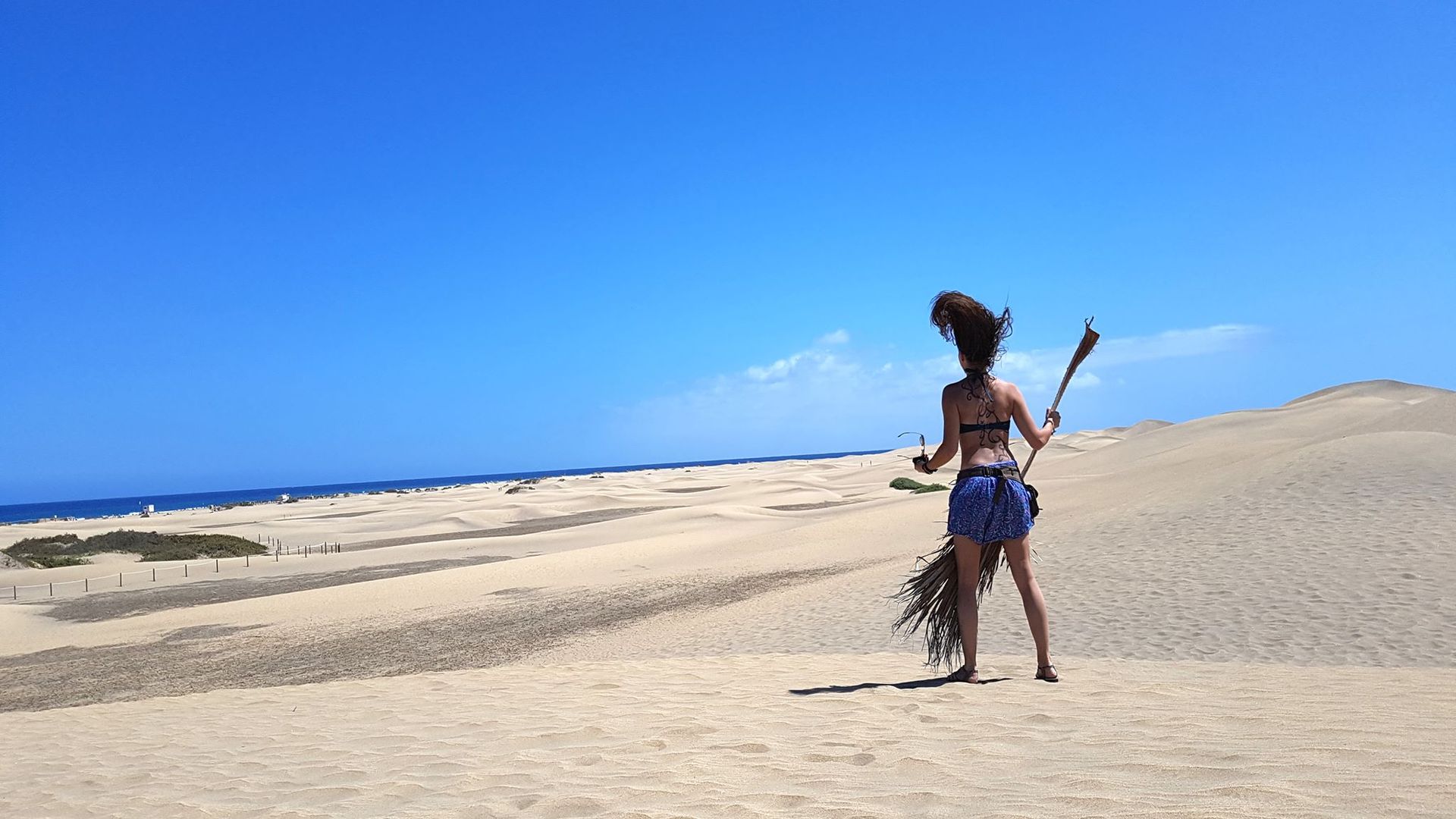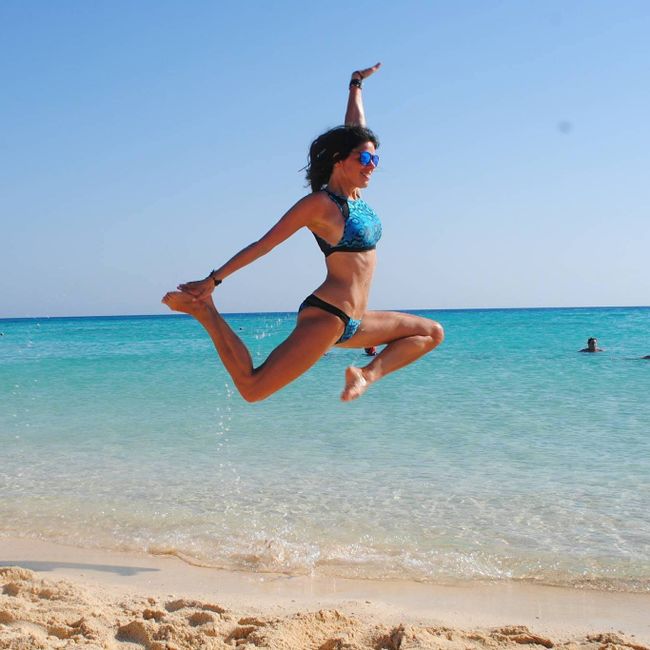पेरू (6): टिटिकाका-देखें
प्रकाशित: 18.01.2018
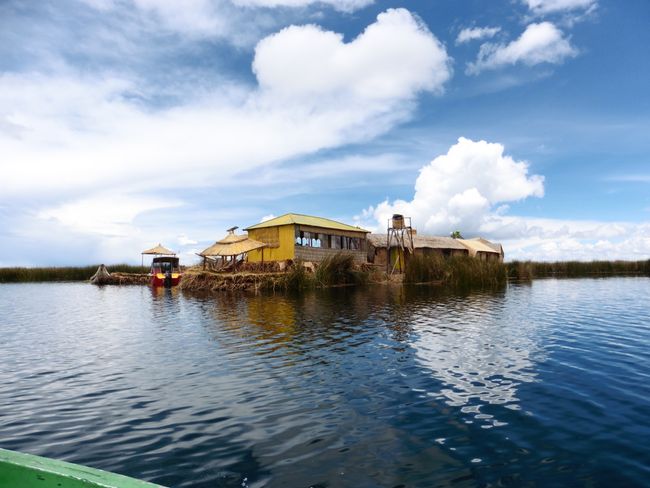
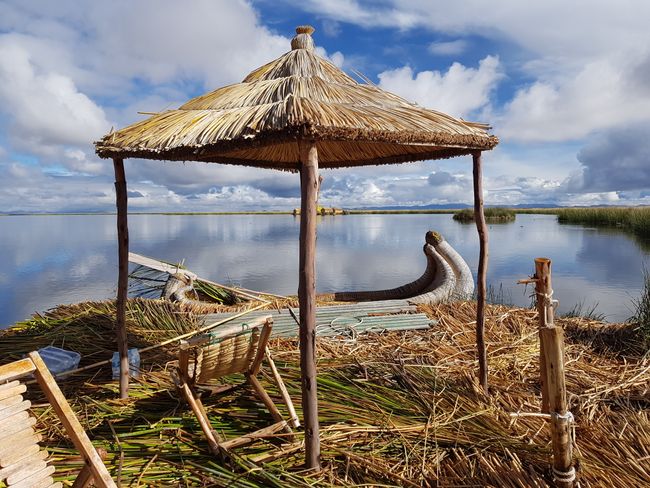
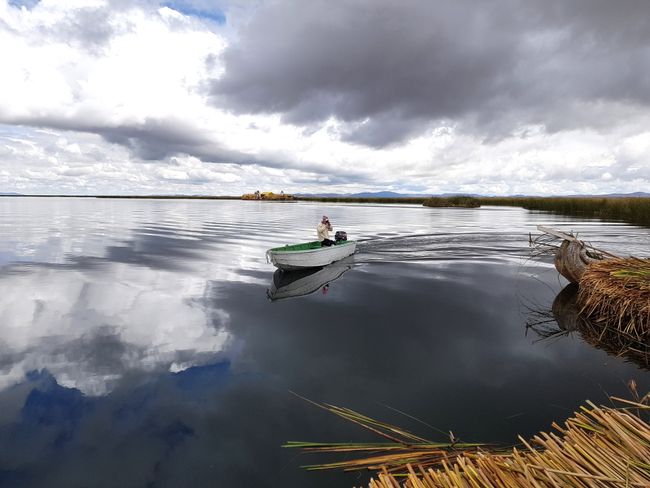
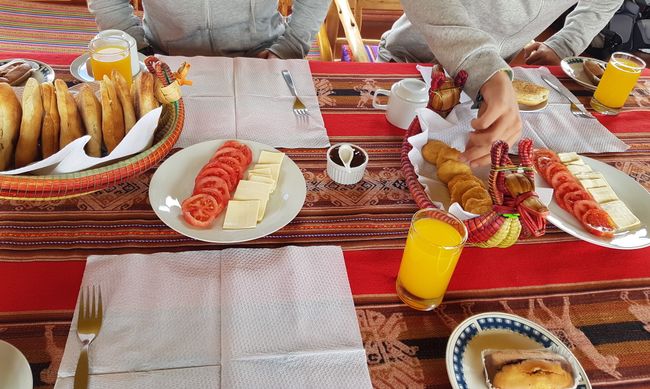
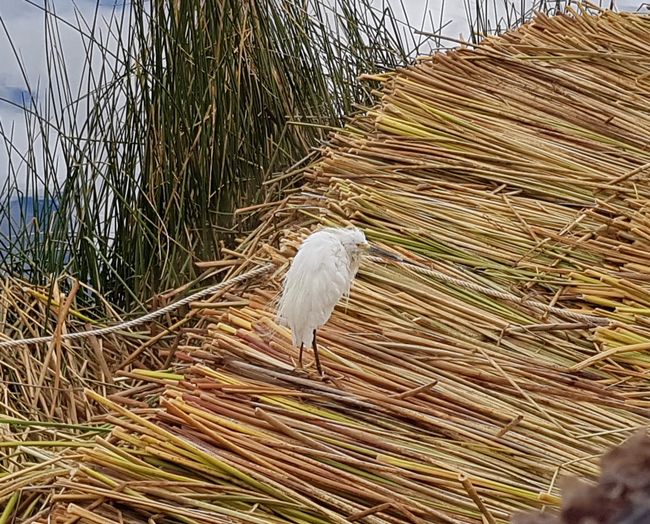
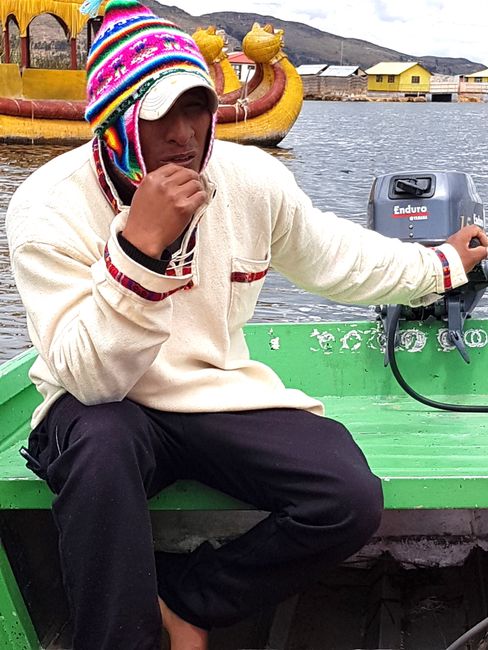
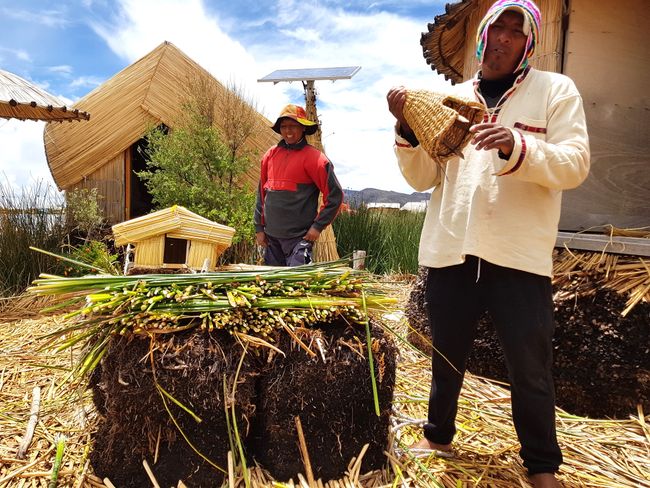
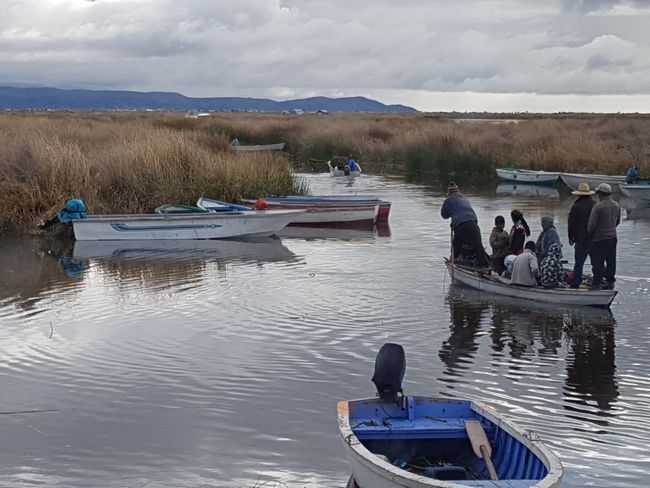
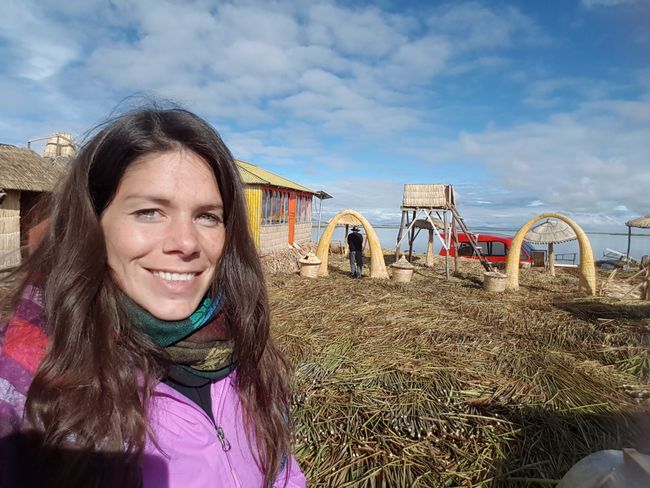
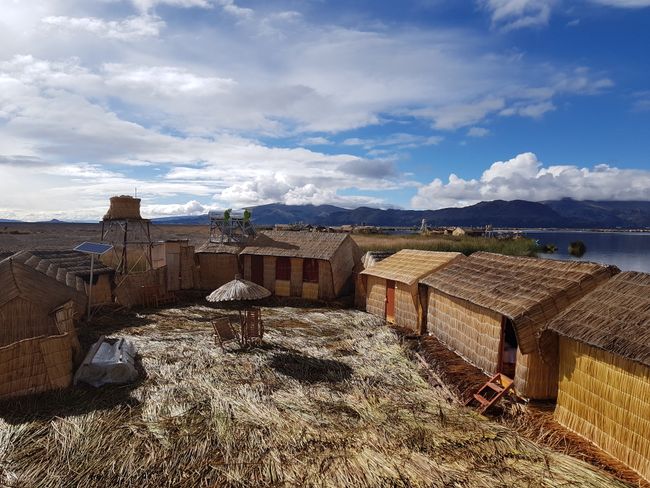
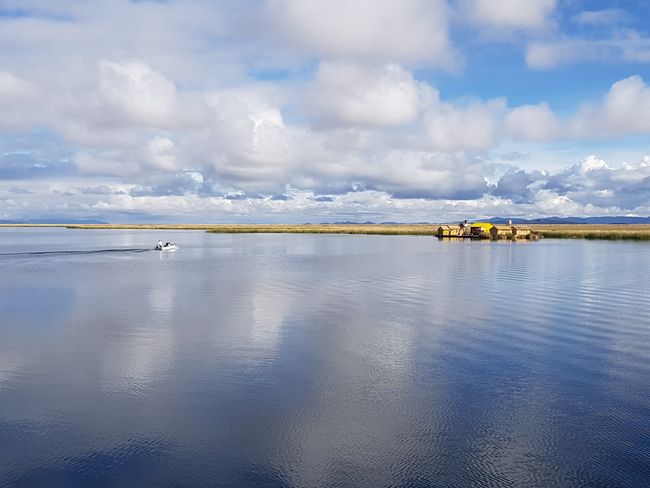

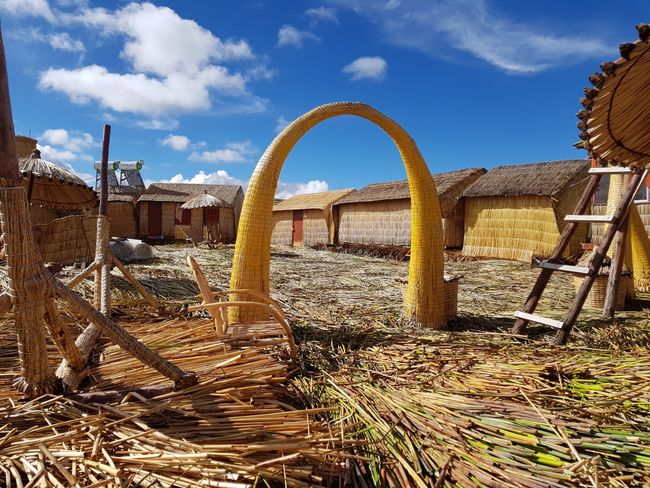
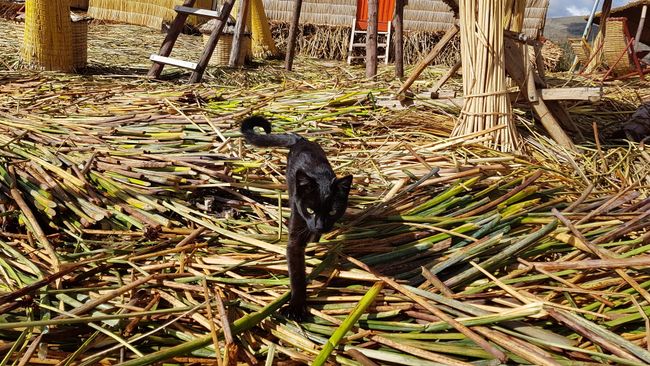
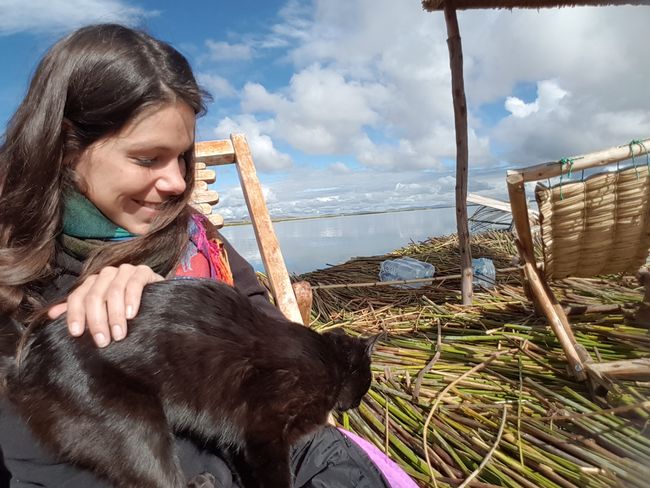
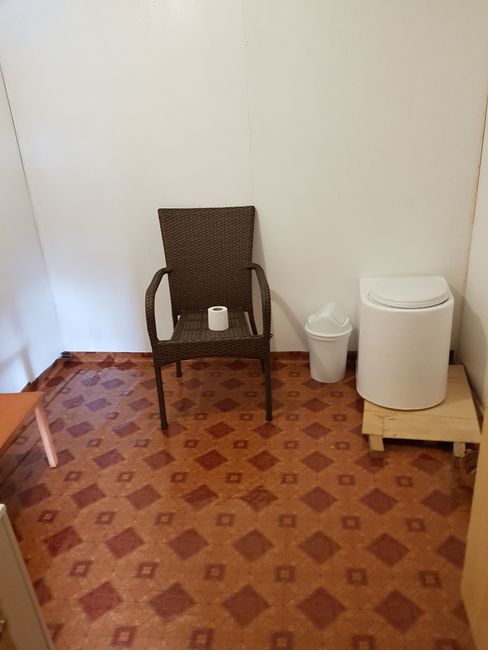
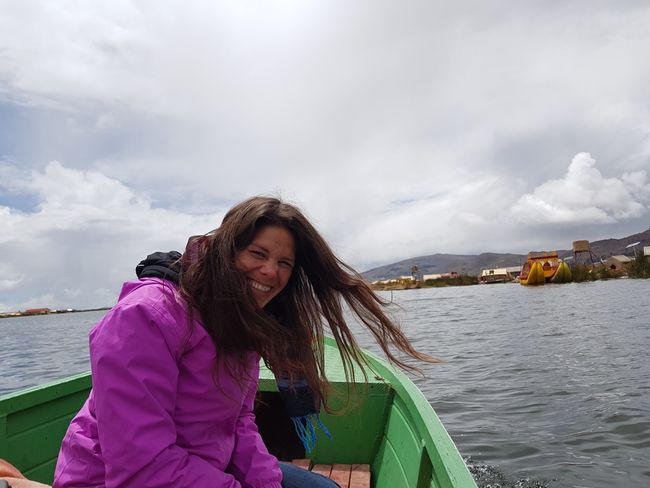
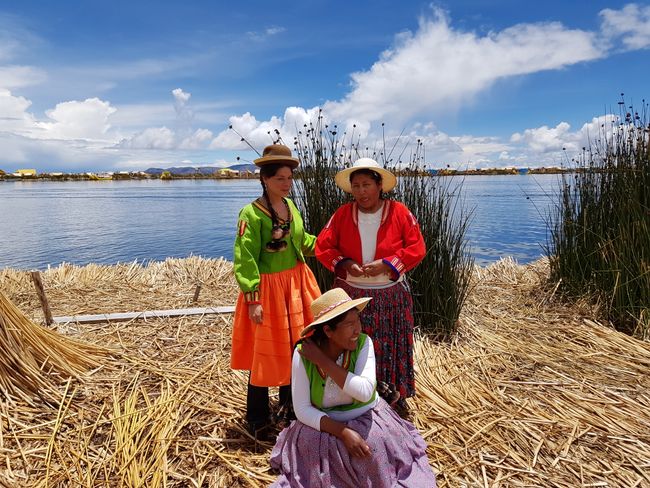
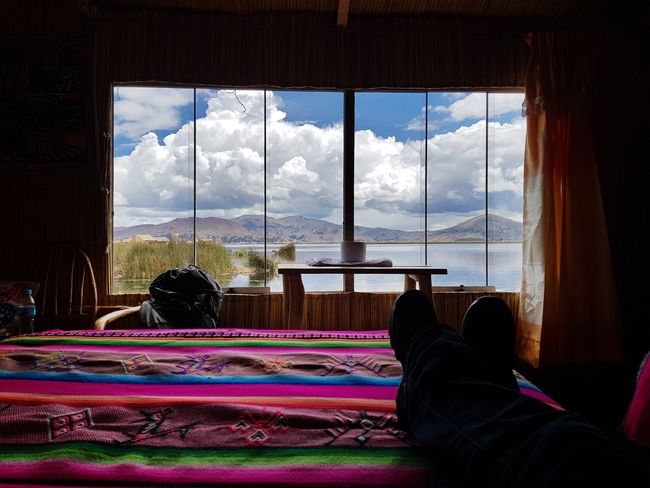
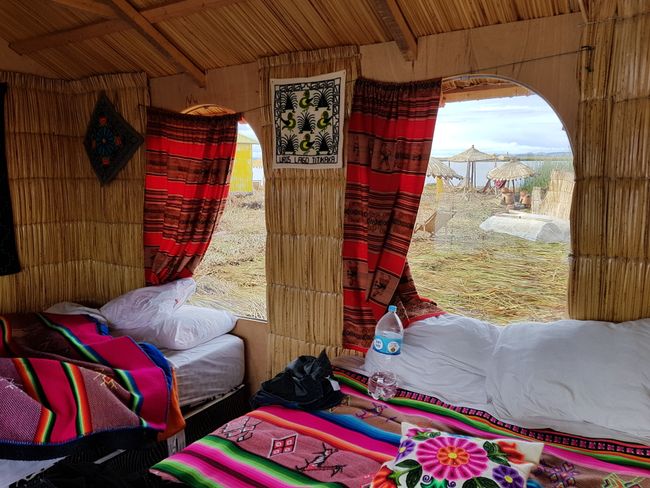
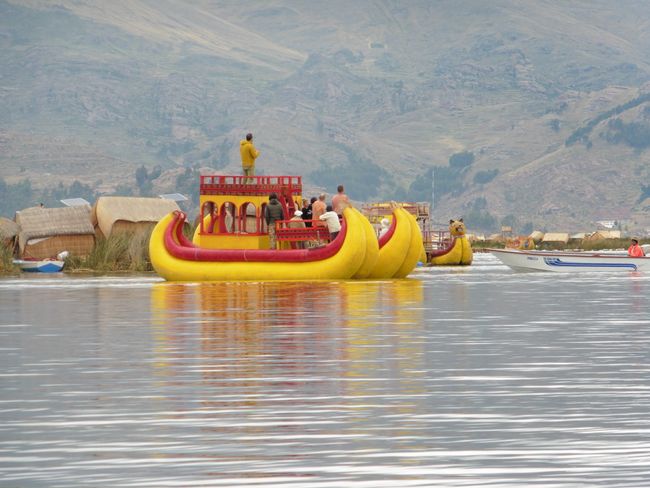
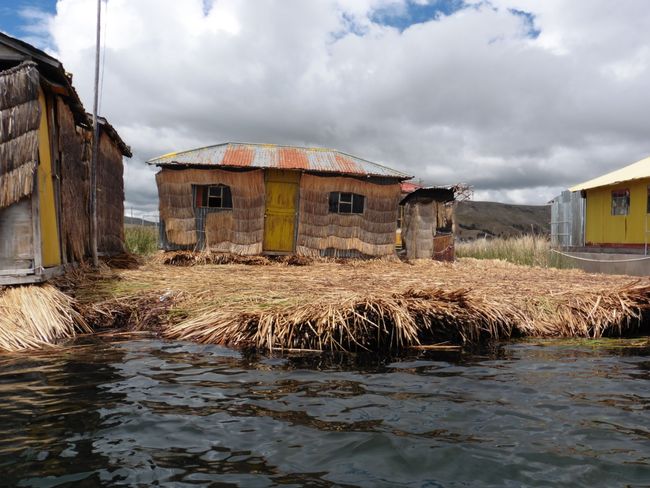
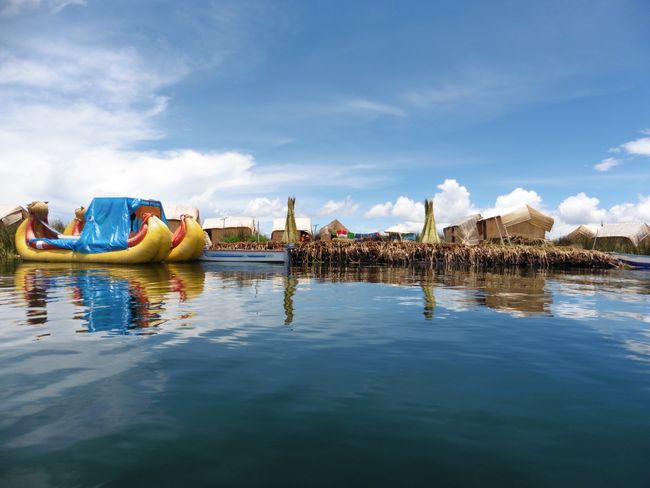
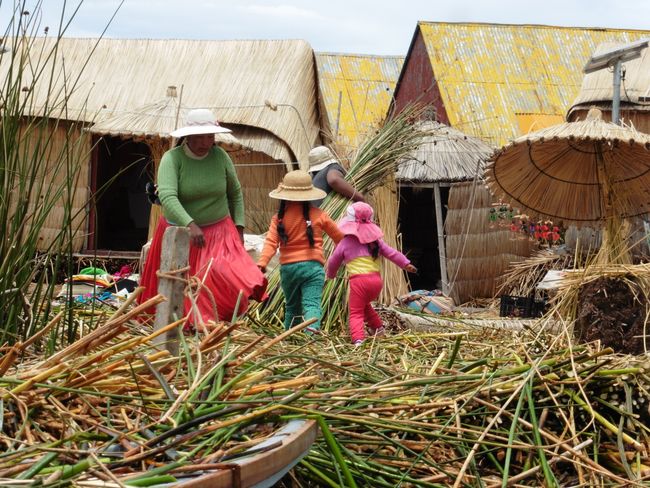
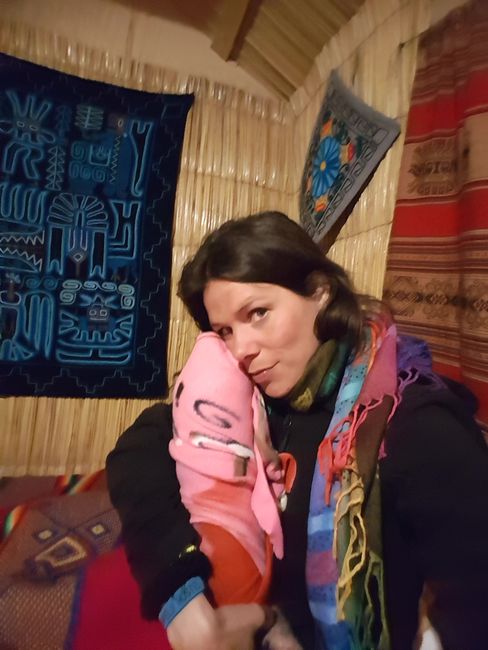
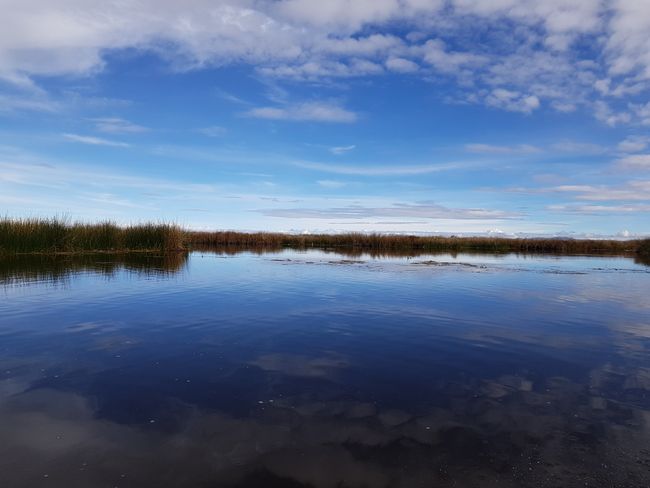
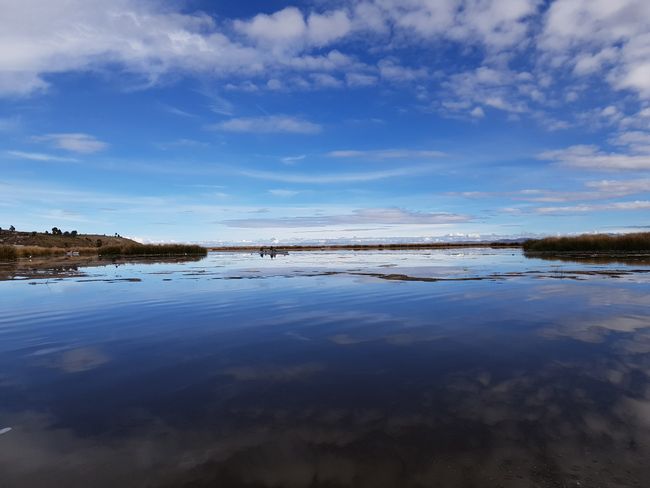
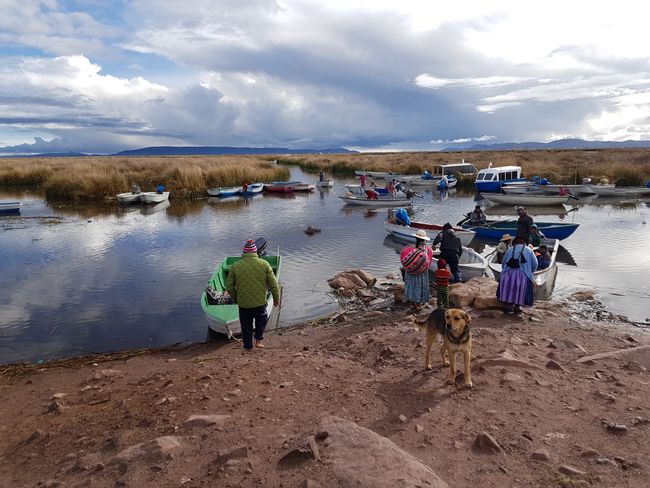
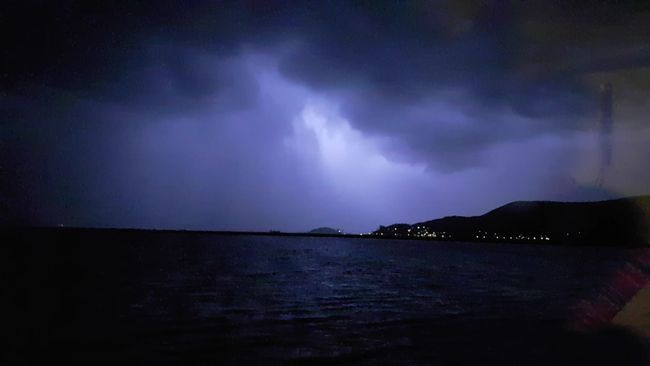
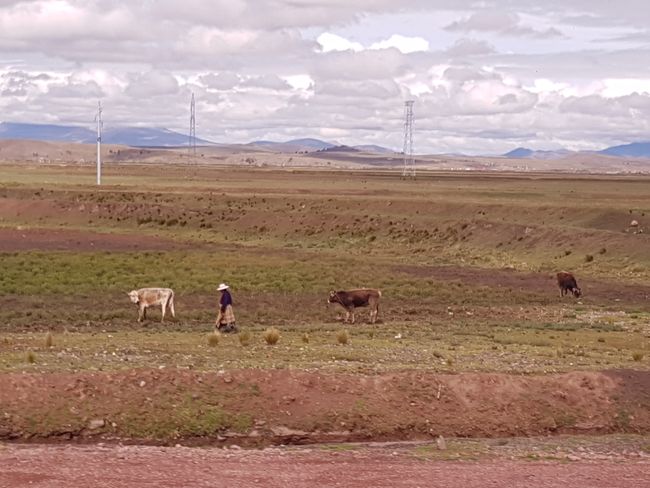
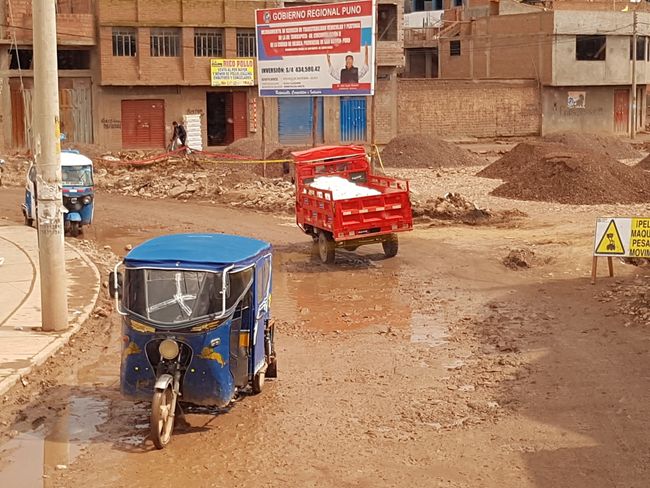
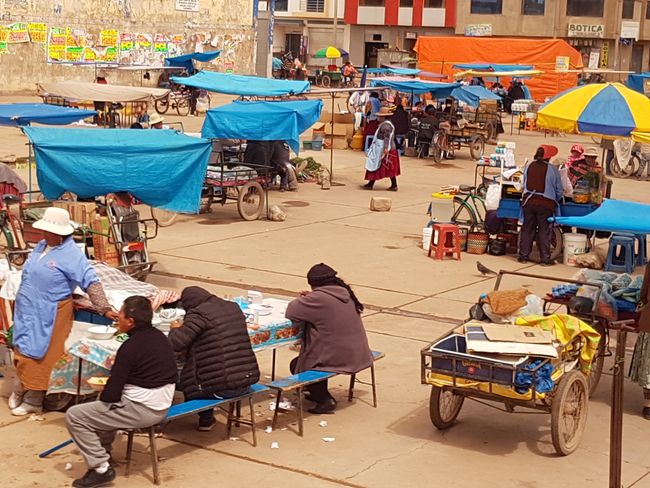
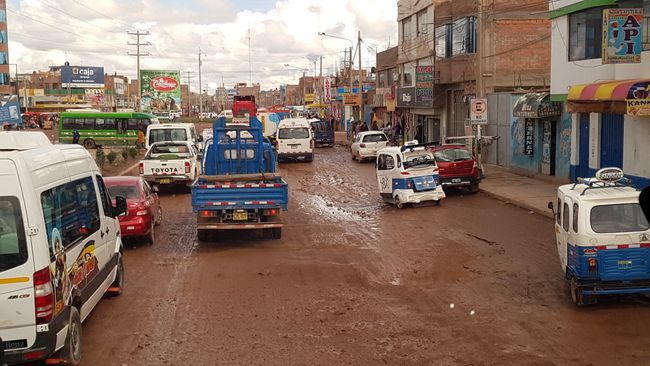
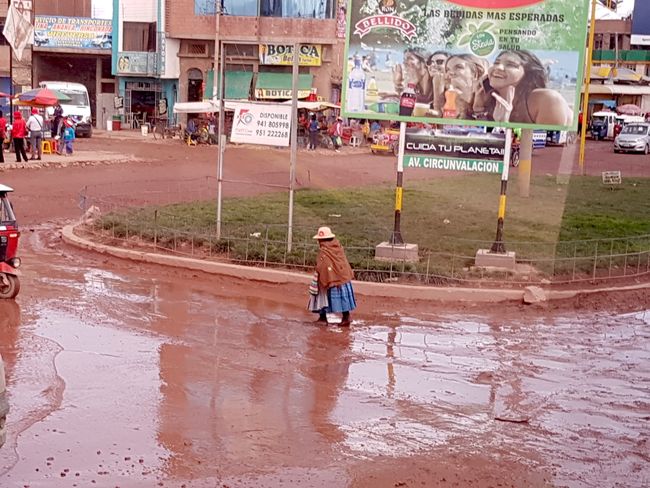
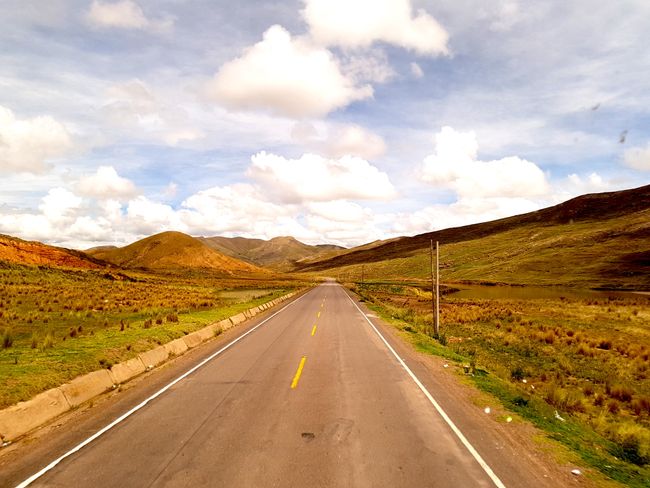
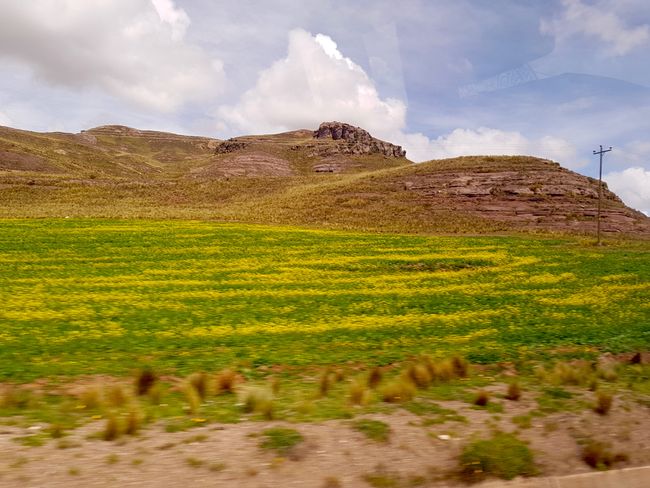
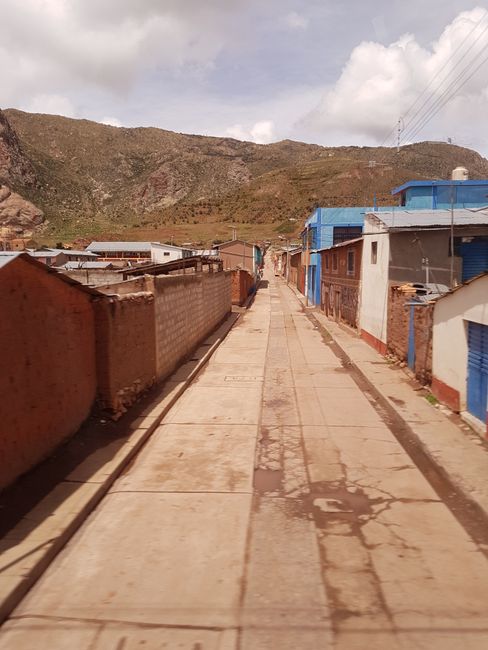
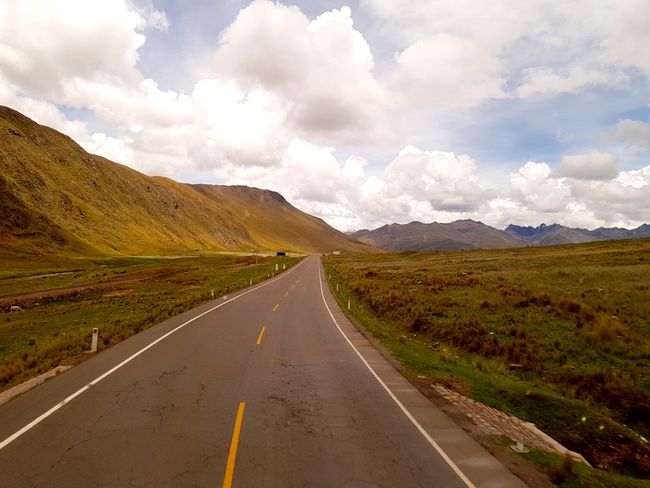
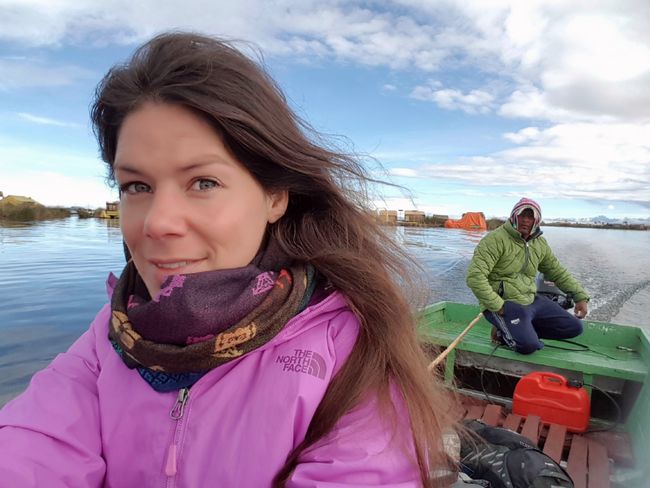
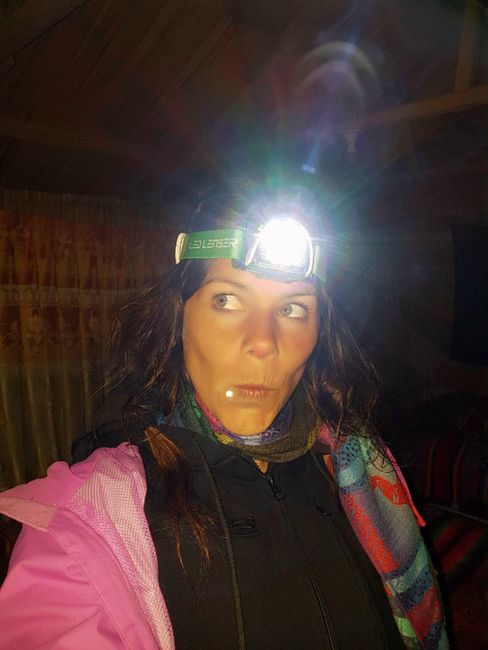
समाचार पत्रिका के लिए सदस्यता लें
16.01.
13. day
The journey was incredibly bumpy and winding. Sleeping was almost impossible, but at least we arrived in Puno pretty much on time at 5 a.m. As I still have to wait until 6 for the taxi to pick me up, I sit among the screaming tour providers and wait. Finally, a man with my name on a sign comes around the corner. We find each other quickly and off we go. After 5 minutes drive through the admittedly unpleasant Puno - at least the streets I see here - we stop near the main port. It is said that we are still waiting for two more people. We wait. And wait. And wait. No one is coming. So we continue to another port, which can hardly be called that. A few boats of the islanders are located on the edge of the reed-covered Lake Titicaca, here is their connection to the mainland.
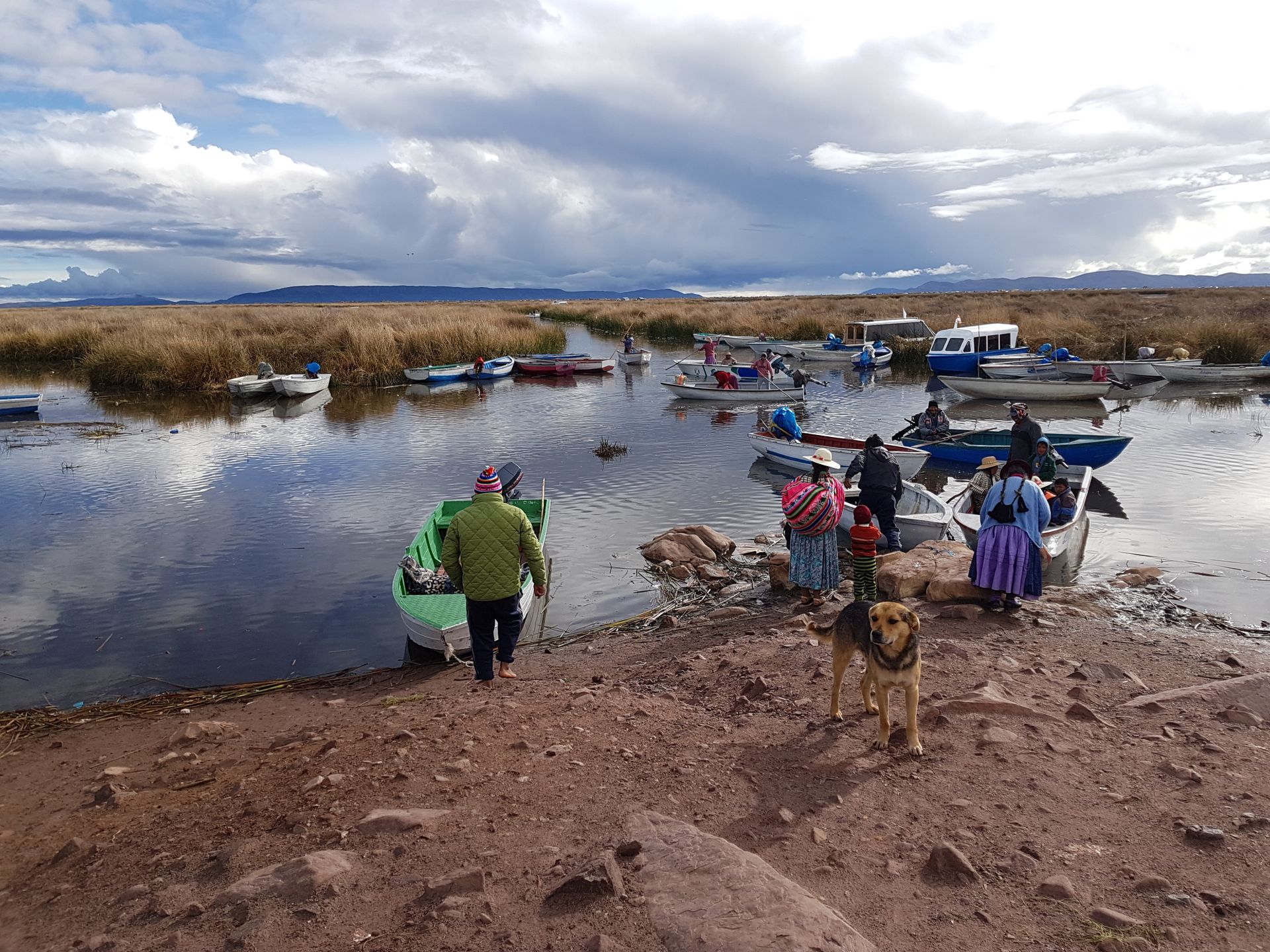
We wait a bit longer until Cesar, the landlord of the accommodation, arrives with his boat and picks me up. Now the other two expected guests also arrive with another taxi driver and get on the boat, an Austrian couple.
We drive for about 10 minutes to Cesar's small island and his family. On the way, we admire the many other islands, all completely built of reed. However, Cesar's island is different from the others. The large colorful double boats rocking in front of many of the 90 islands have nothing to do with tradition, they were only built for tourists.
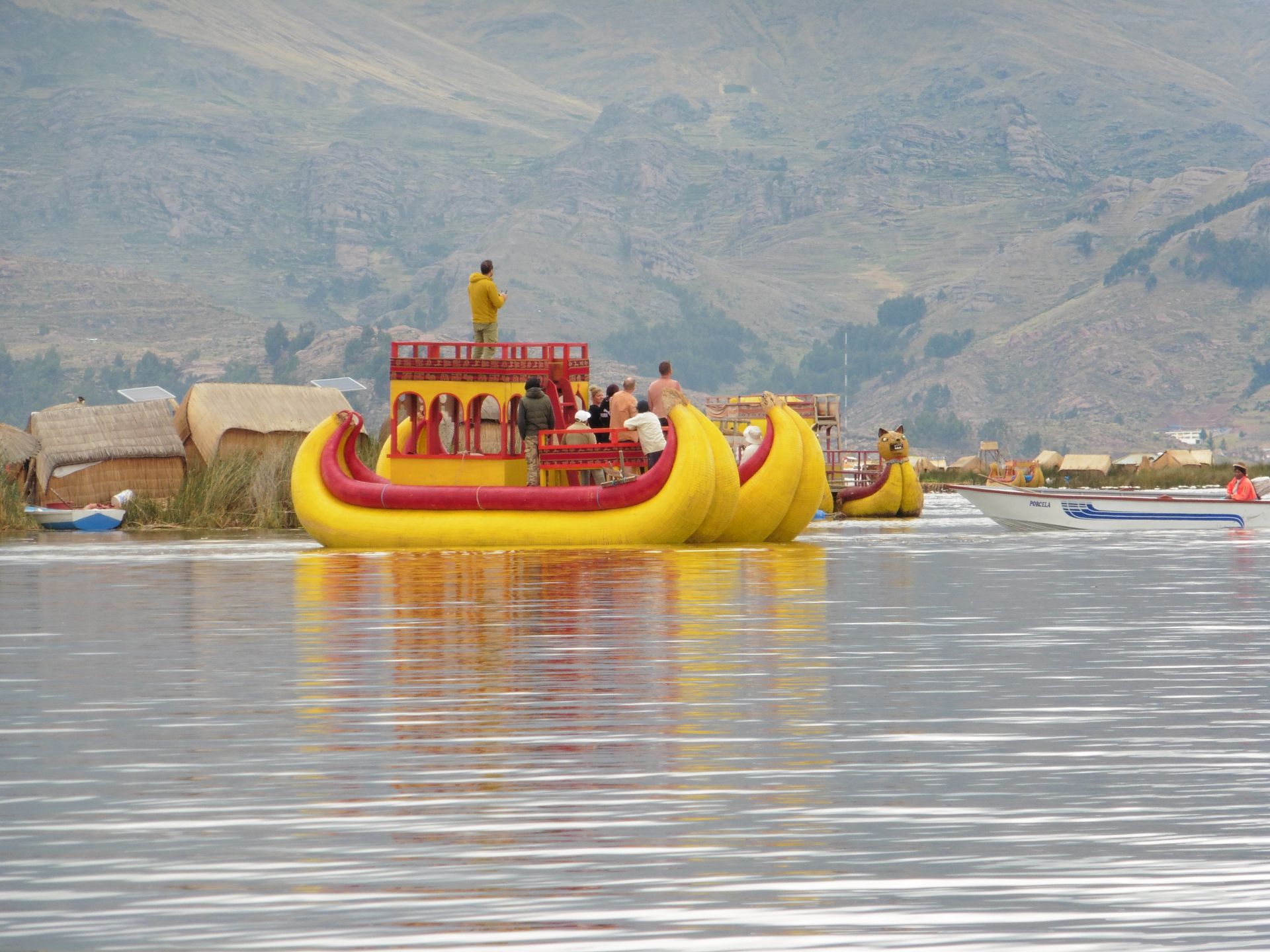
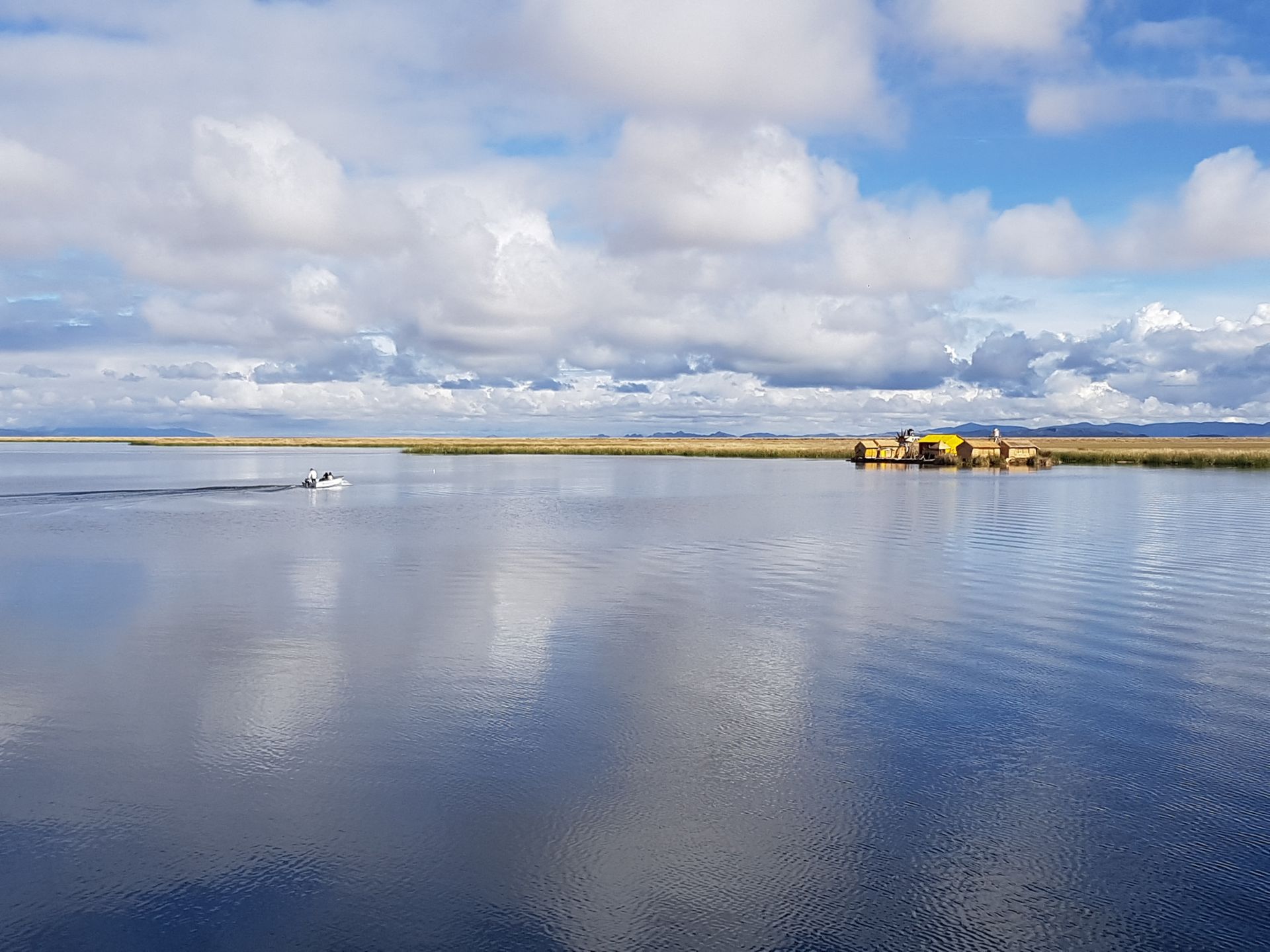
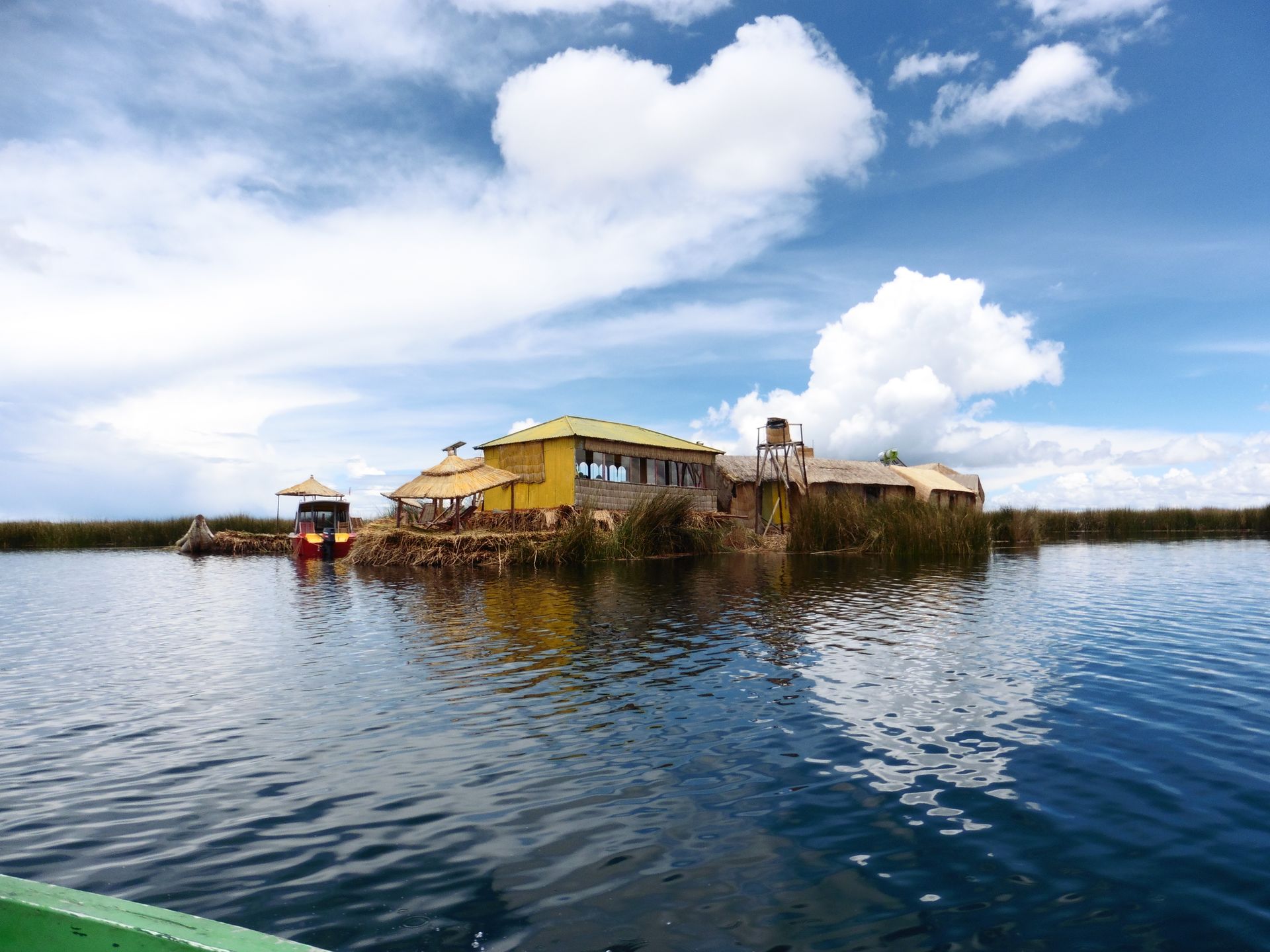
Cesar will tell us more about this during the day.
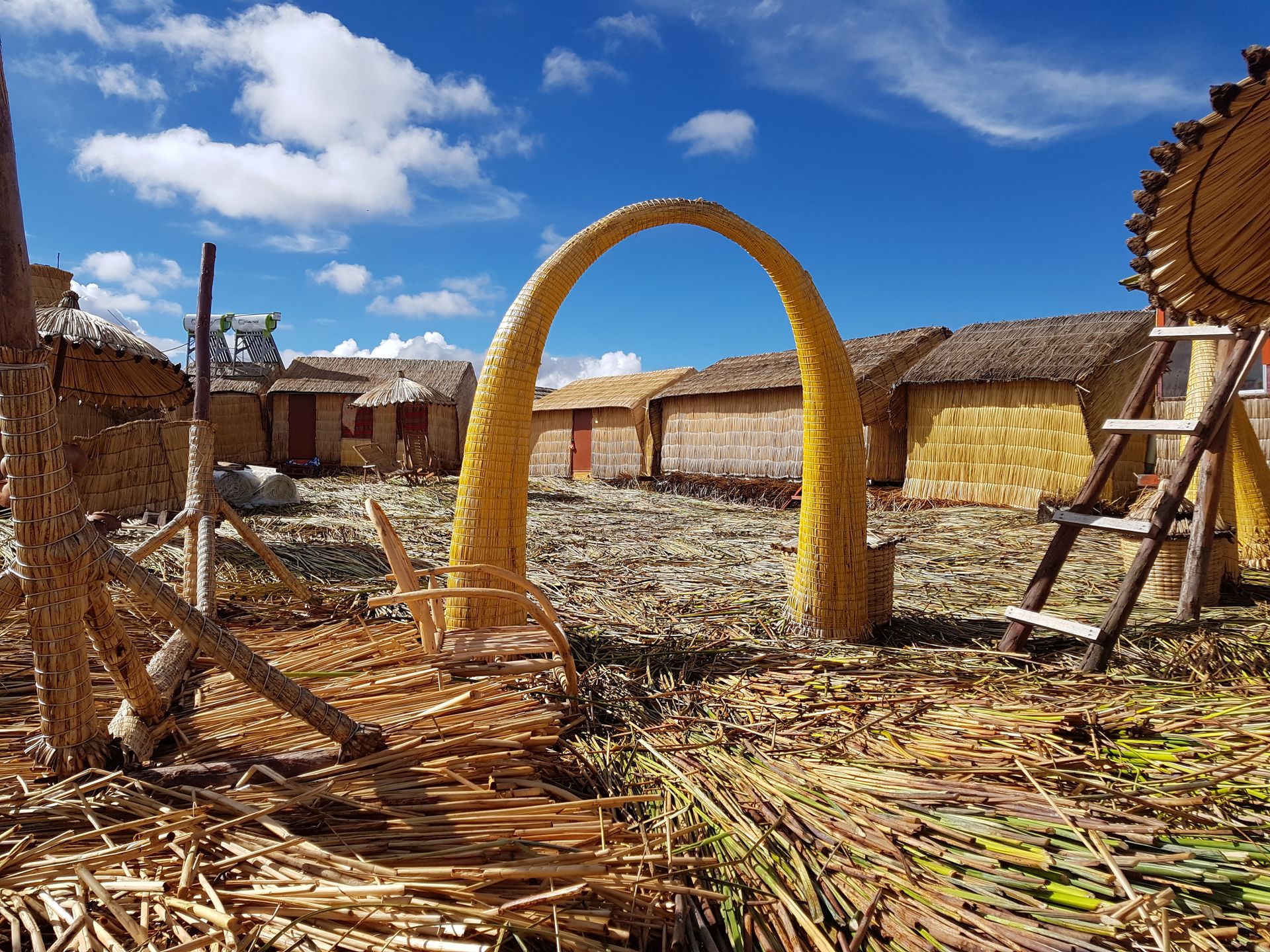
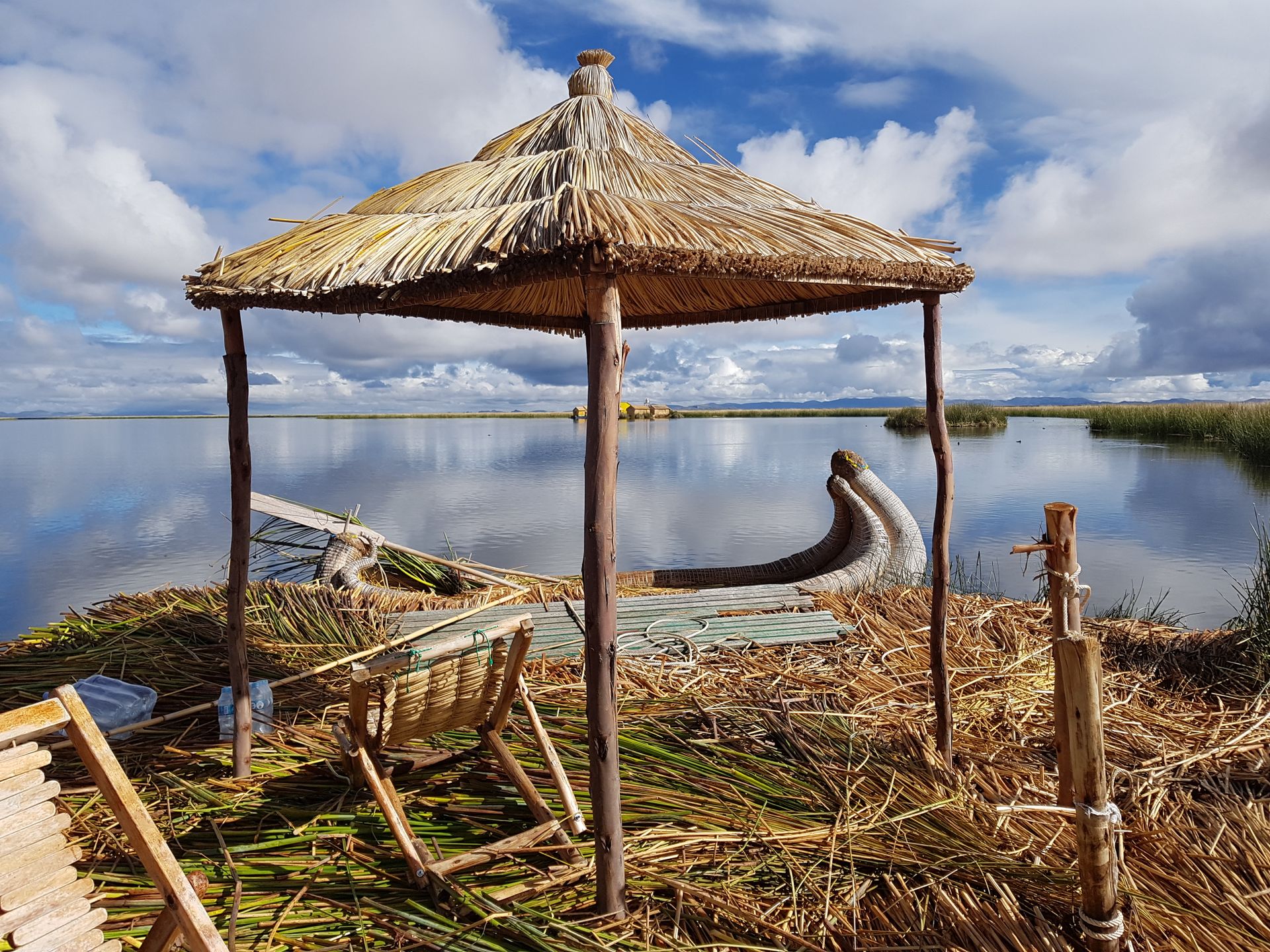
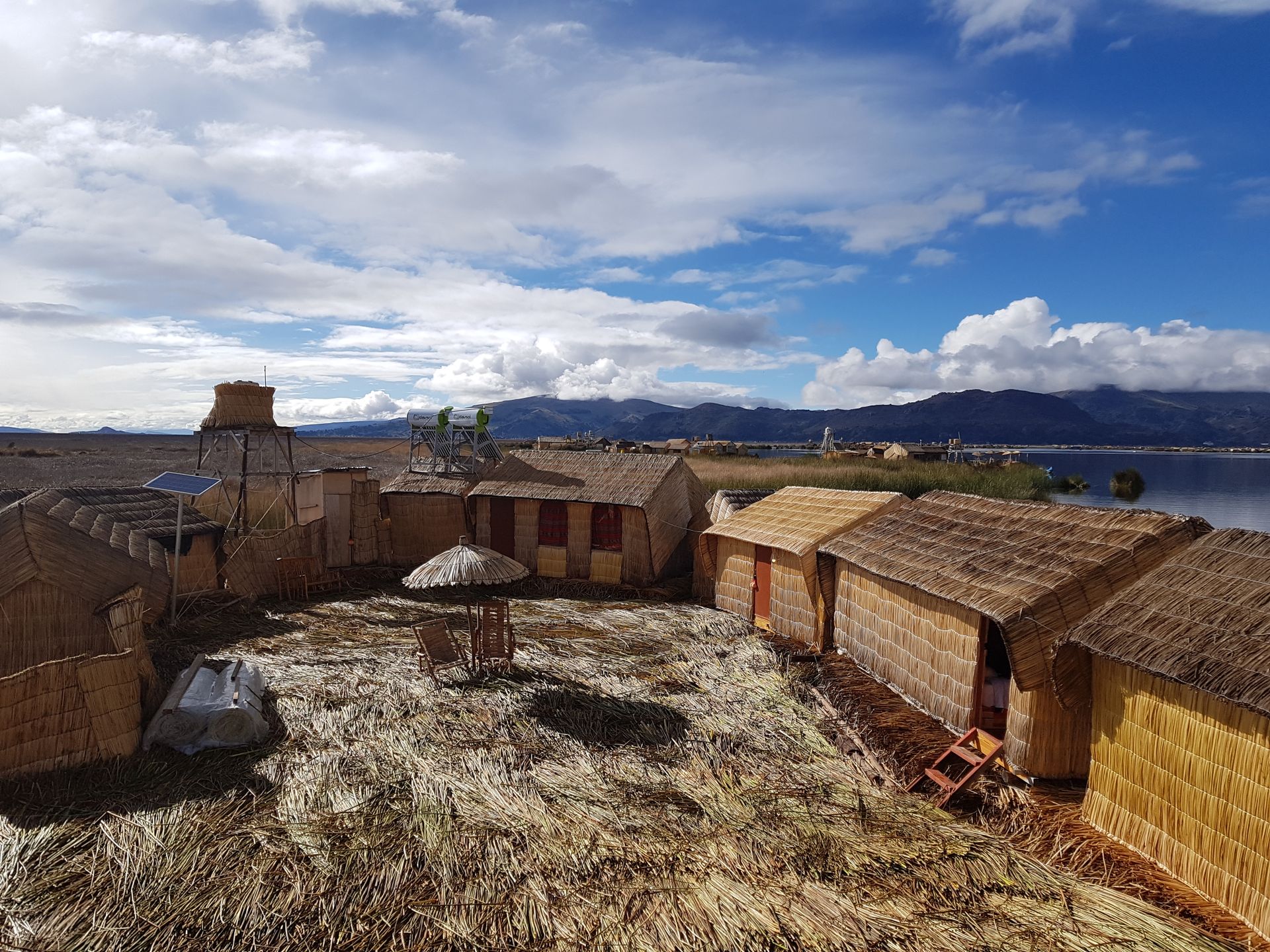
At the moment there is a 6-member Brazilian family in the main house. It's not easy to communicate. Pure Portuguese with the people. However, they are leaving today.
The only guests tonight are the Austrian couple and me. I don't like to write negatively about people, but... the two were just incredibly annoying. Everything was somehow shit:
Ughh, I'm cold
Ughh, I'm hungry
Ughh, this is sticky
Ughh, I don't like fish
Ughh, water is wet
Ughh, everything looks the same
Ughh, it's just an outhouse
Ughh, I want to sleep
Ughh, I'm hungry again
Ughh, I'm too warm
Ughh ughh ughh ughhh...
Exhausting. The two have been traveling around the world for almost half a year, how can they be so ungrateful for everything? It's beyond me.
The island is beautiful. Cesar and his family make incredible efforts to make sure we have everything we need. The rooms are lovingly furnished. Right. There is no power outlet in the room to the annoyance of the couple... it's a reed island, dude.
The tranquility is incredible!
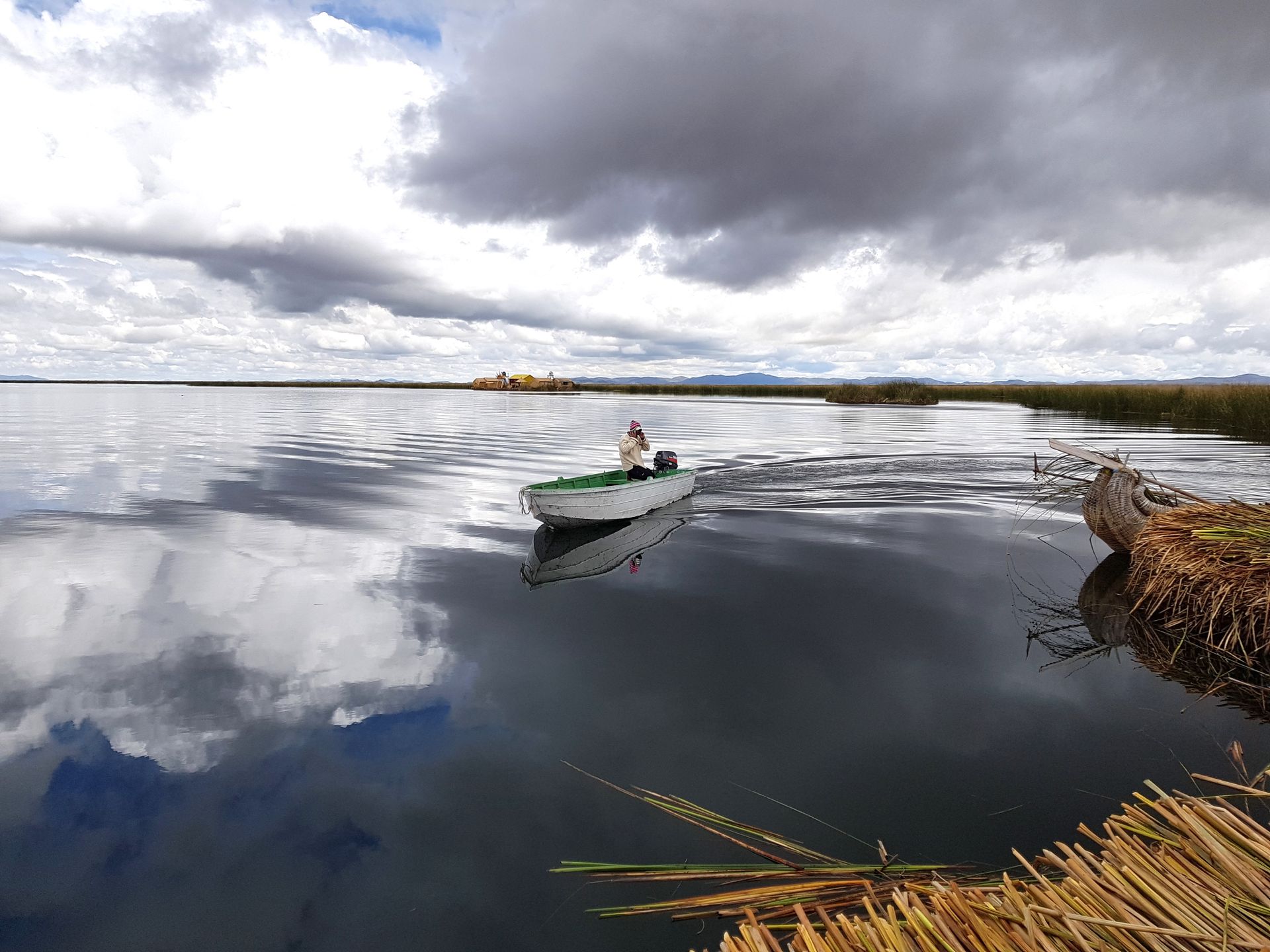
We are served a great breakfast, although we can only check in from noon.
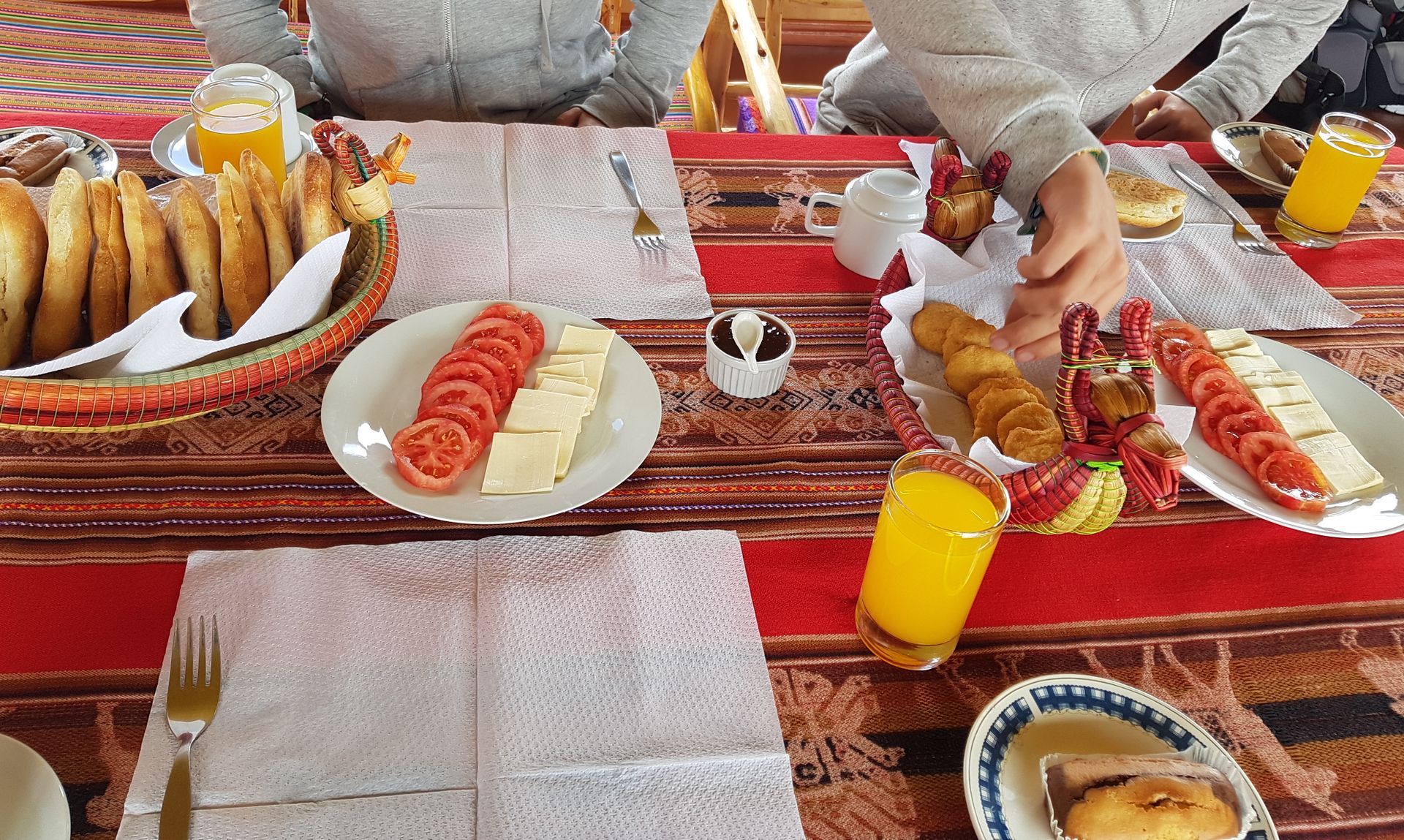
After breakfast, Cesar takes us on a tour of the community in his boat. We pass many islands and Cesar tells us a lot about the origin and history of the Uros.
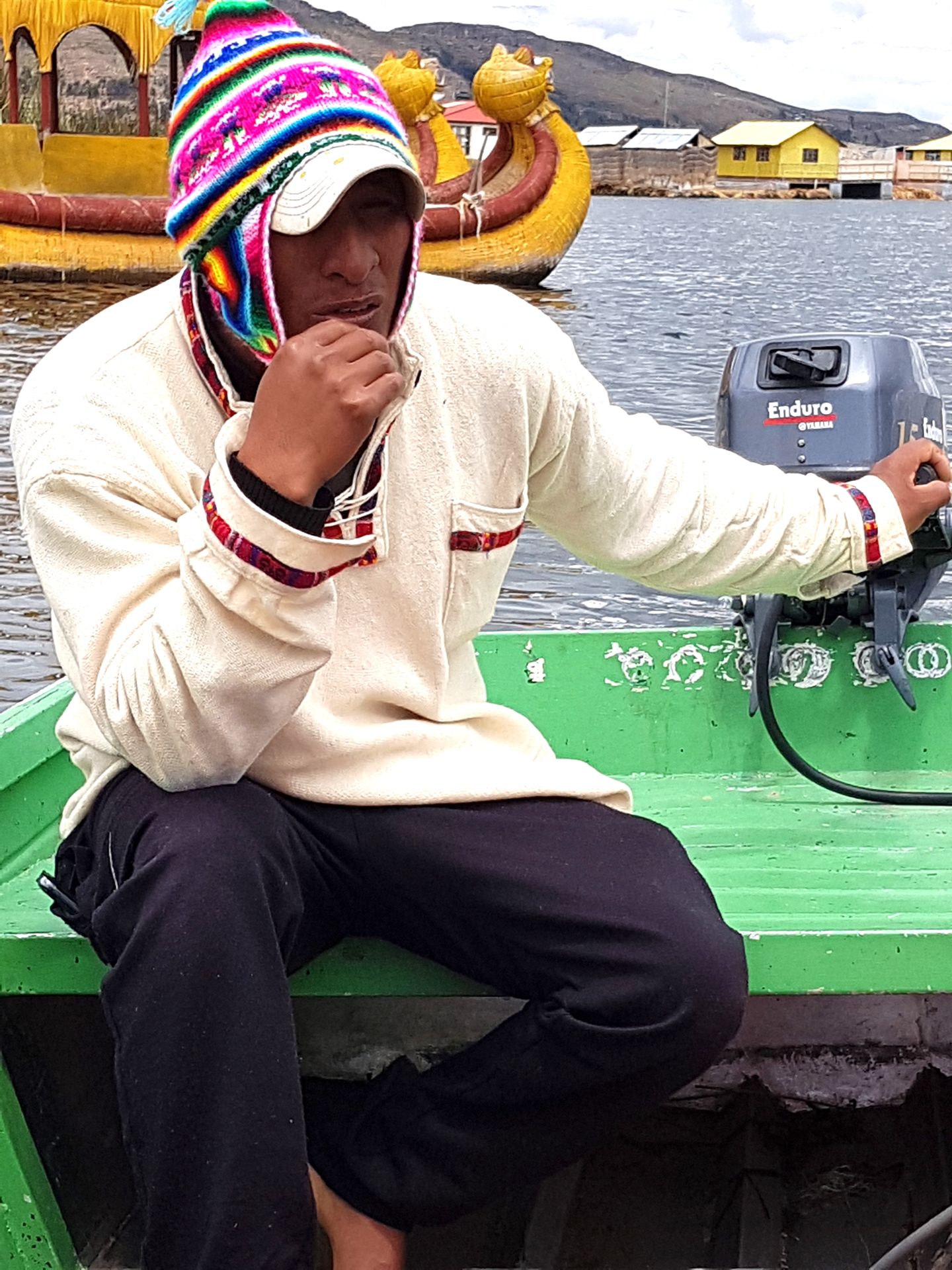
The language of the indigenous people here is Aymara, but everyone also speaks Spanish. English, not so much. Despite the small population of 1900 people, there are many different religions. There is an Andean religion, it is the belief in nature, mother earth, water, sun, and air. There is also a kindergarten and an elementary school here.
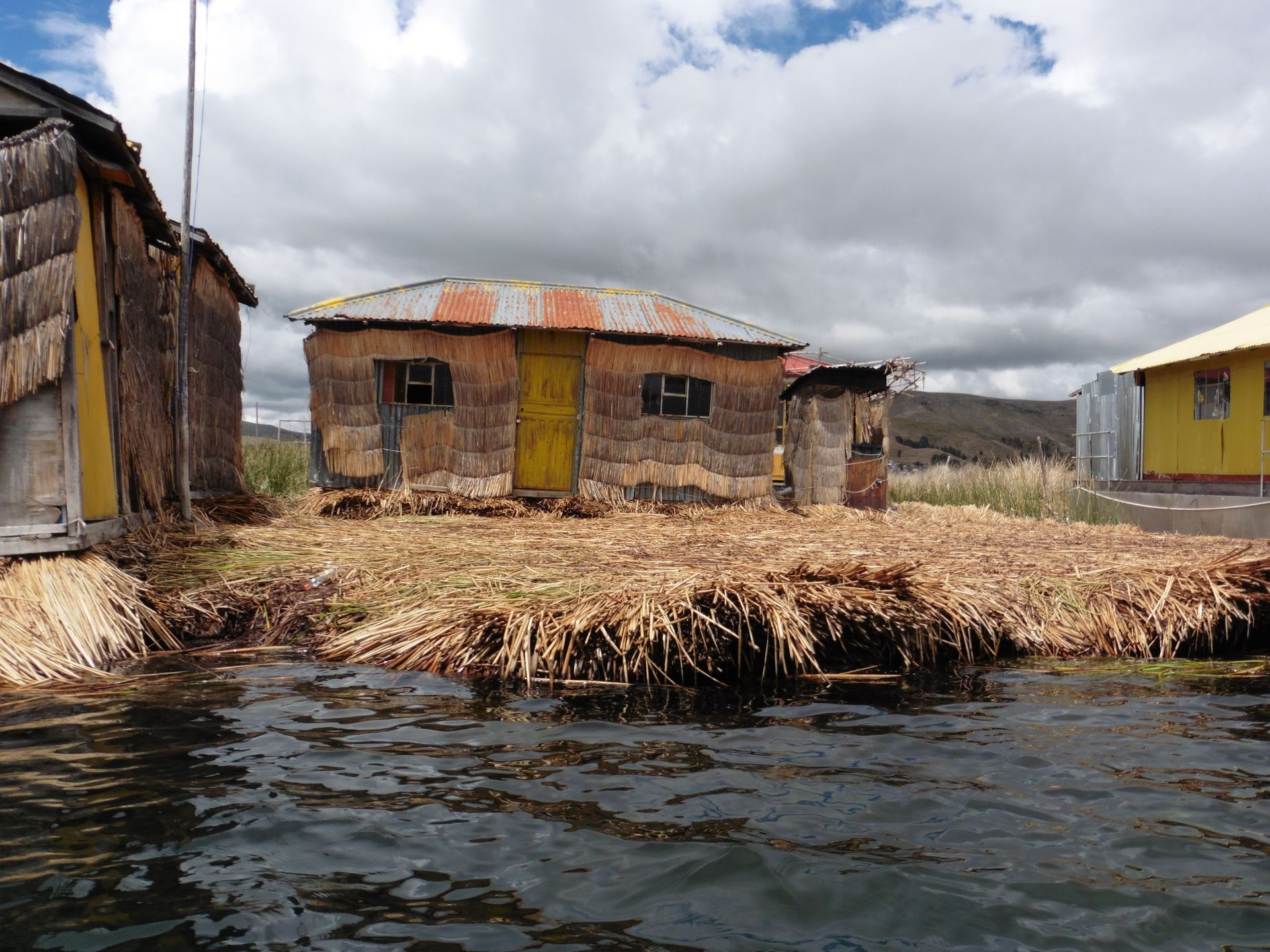 (the kindergarten)
(the kindergarten)The residents live very traditionally. They fish and collect eggs, they hunt twice a week, mostly ducks, and what they don't consume themselves, they exchange in the mountains for potatoes, grains like quinoa, etc.
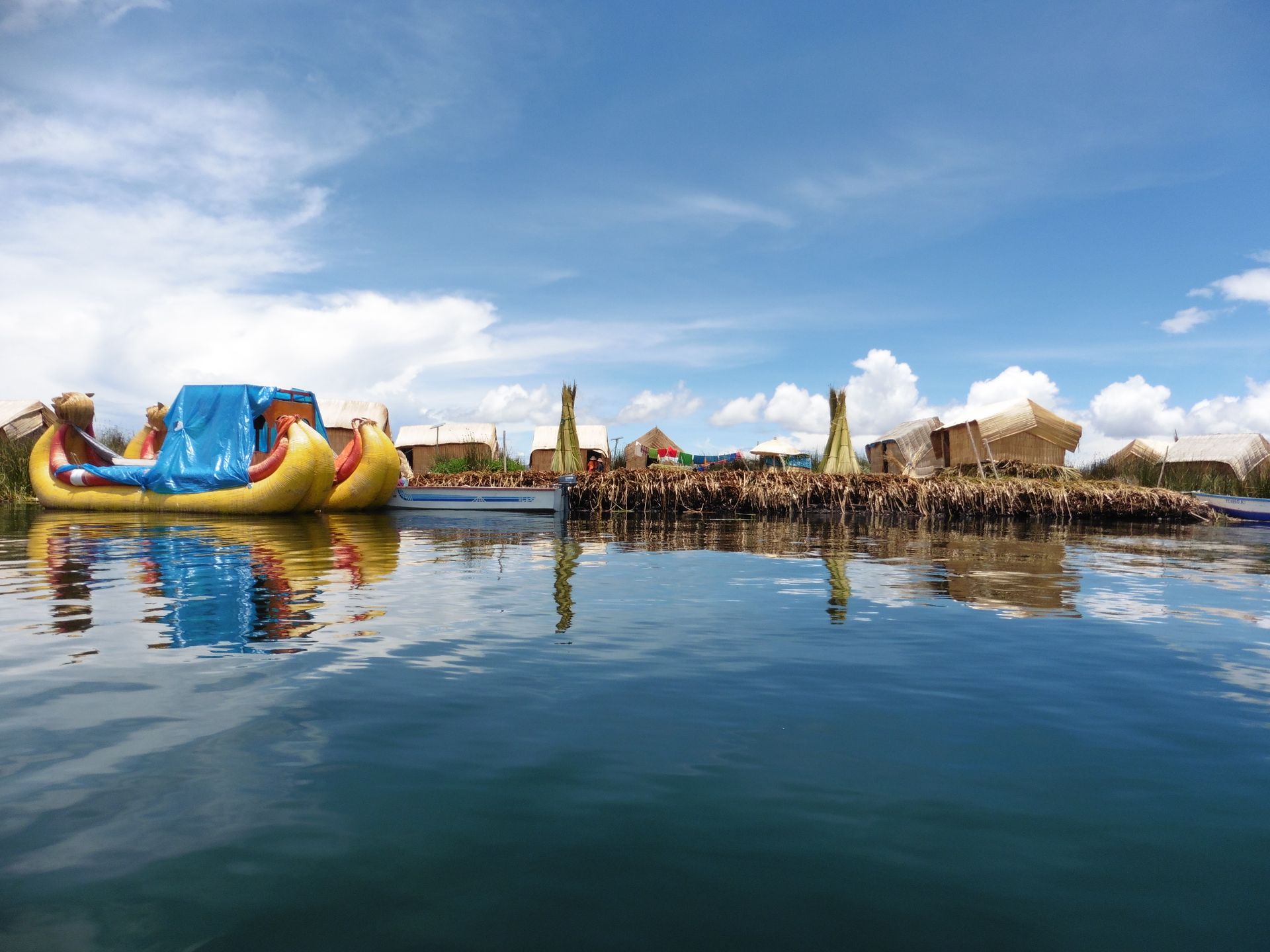
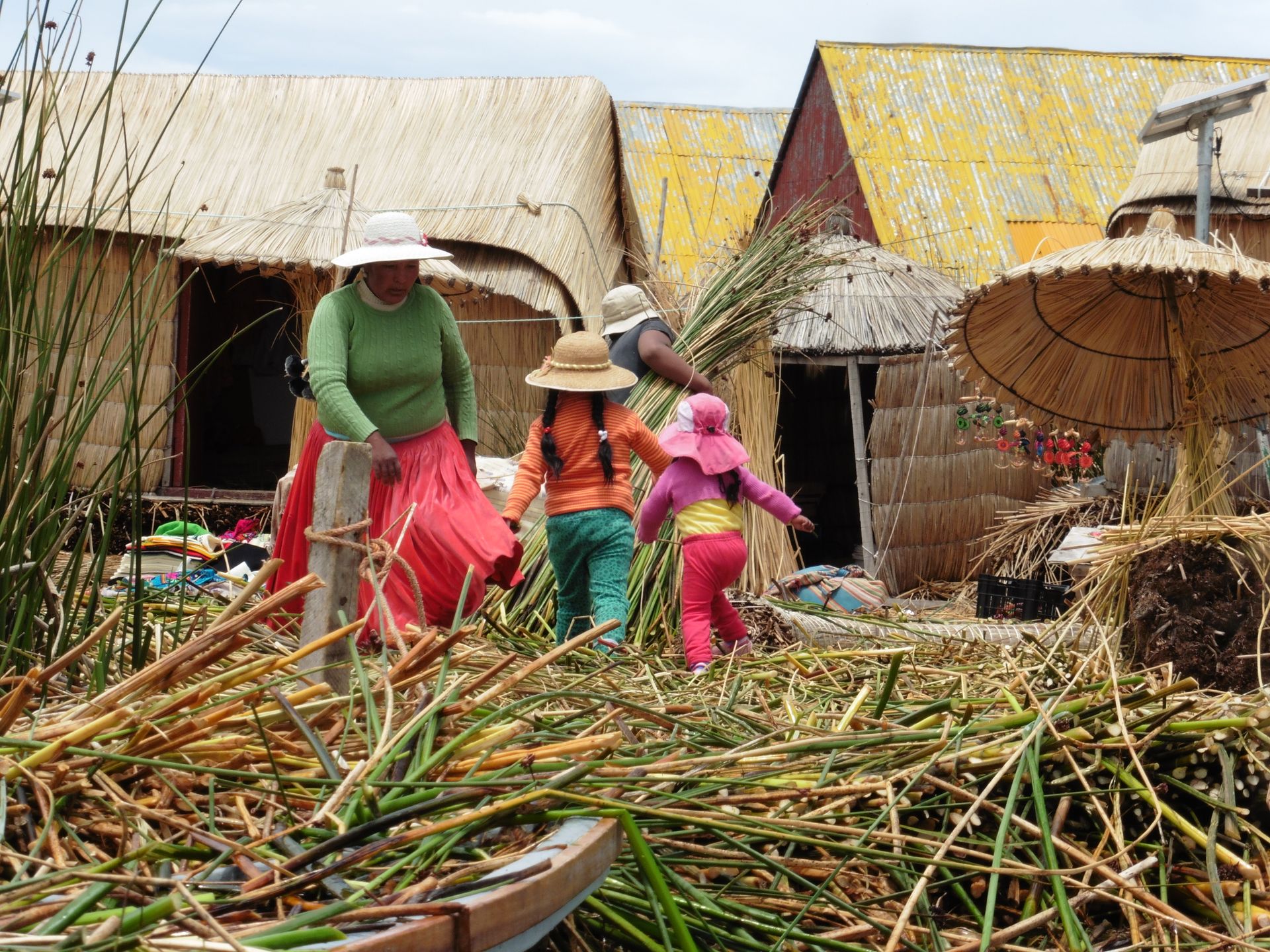
Cesar says that what the books say, that the Uros originated because the indigenous people were expelled by the Spaniards or Incas, is not true. In any case, the stories here are much simpler and are passed down from generation to generation. It is a simple story. There was not enough to eat in the mountains, so they moved to the lake where they had fish and chickens. They simply settled here to be closer to the food.
We stop at an island of acquaintances, where Cesar and two women explain again how exactly such an Uro is built. Super exciting.
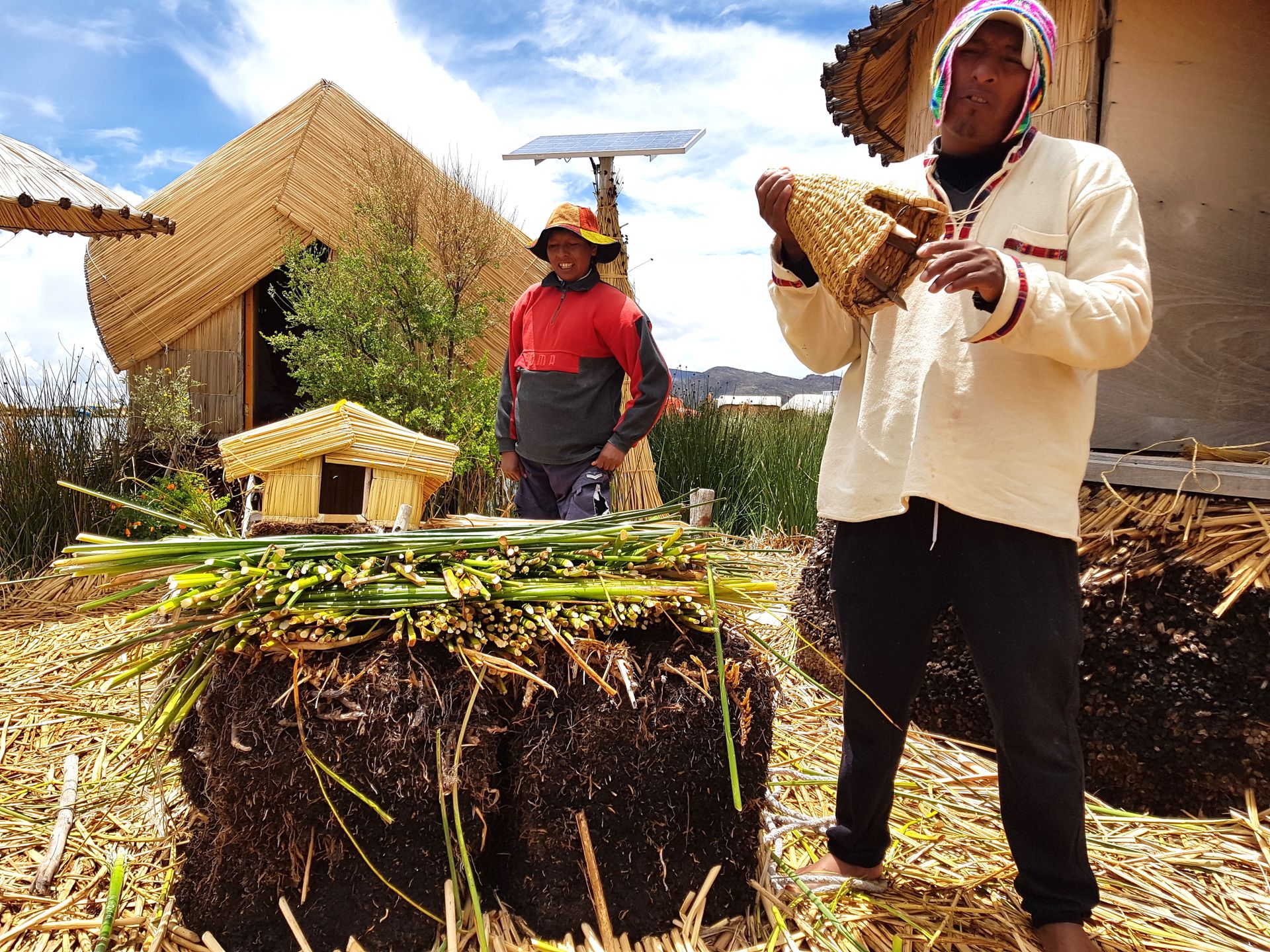
Sometimes, after an earthquake, some islands move as far as Bolivia. Proudly, he says: And we don't need a passport!
I talk to one of the traditional women and she shows me her small hut. I ask her about the typical clothing and she immediately gets excited and offers me to try some on. Of course, I agree.

She asks me what I do for a living. Of course, she immediately says: Oh, a song, please... just one!
Usually I would say no, but I thought it would be inappropriate here. So I hang out in an indigenous hut made of reed, wearing colorful Titicaca clothes and sing a song. They seem to not have this very often here because she is really happy and the other residents look in.
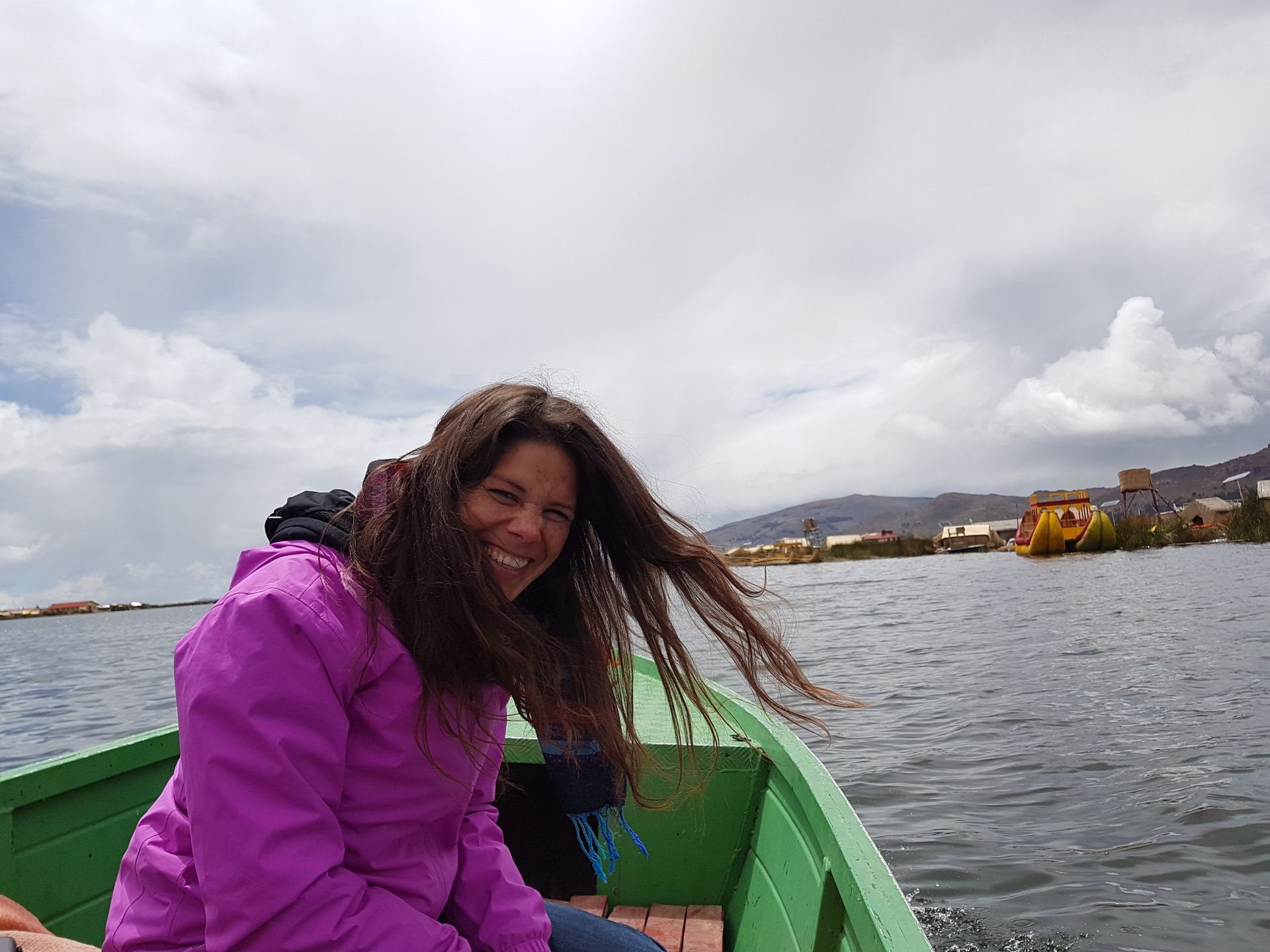
Then we continue, we drive around a bit before we return to the island after a 2.5-hour trip.
The weather is really peculiar. We are already at almost 4000m altitude and it is quite cold, but when the sun comes out, it burns. Put on, take off, put on, take off, put on...
Now our rooms are ready. I have a pretty big hut with an incredibly beautiful window front facing the lake.
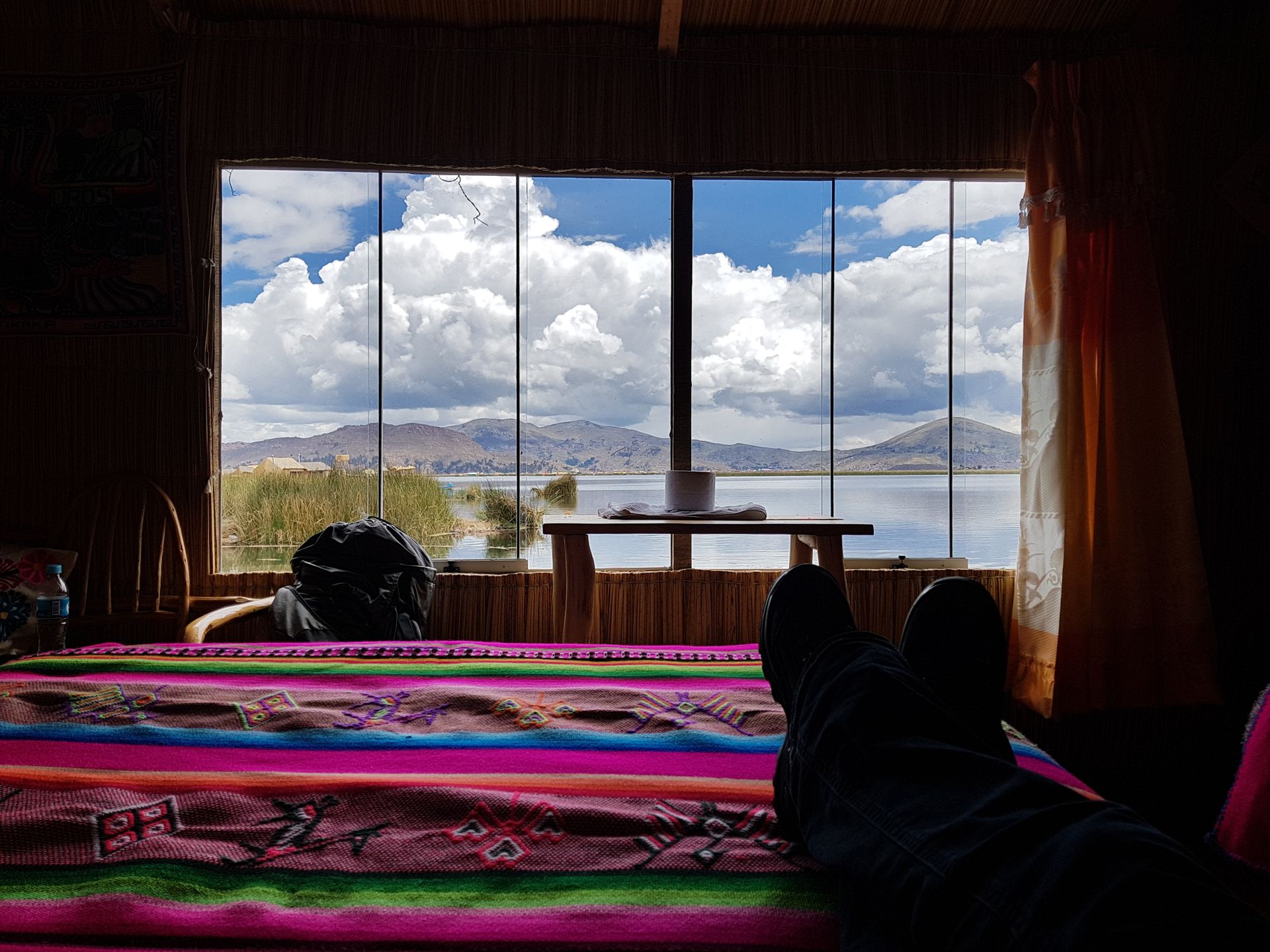
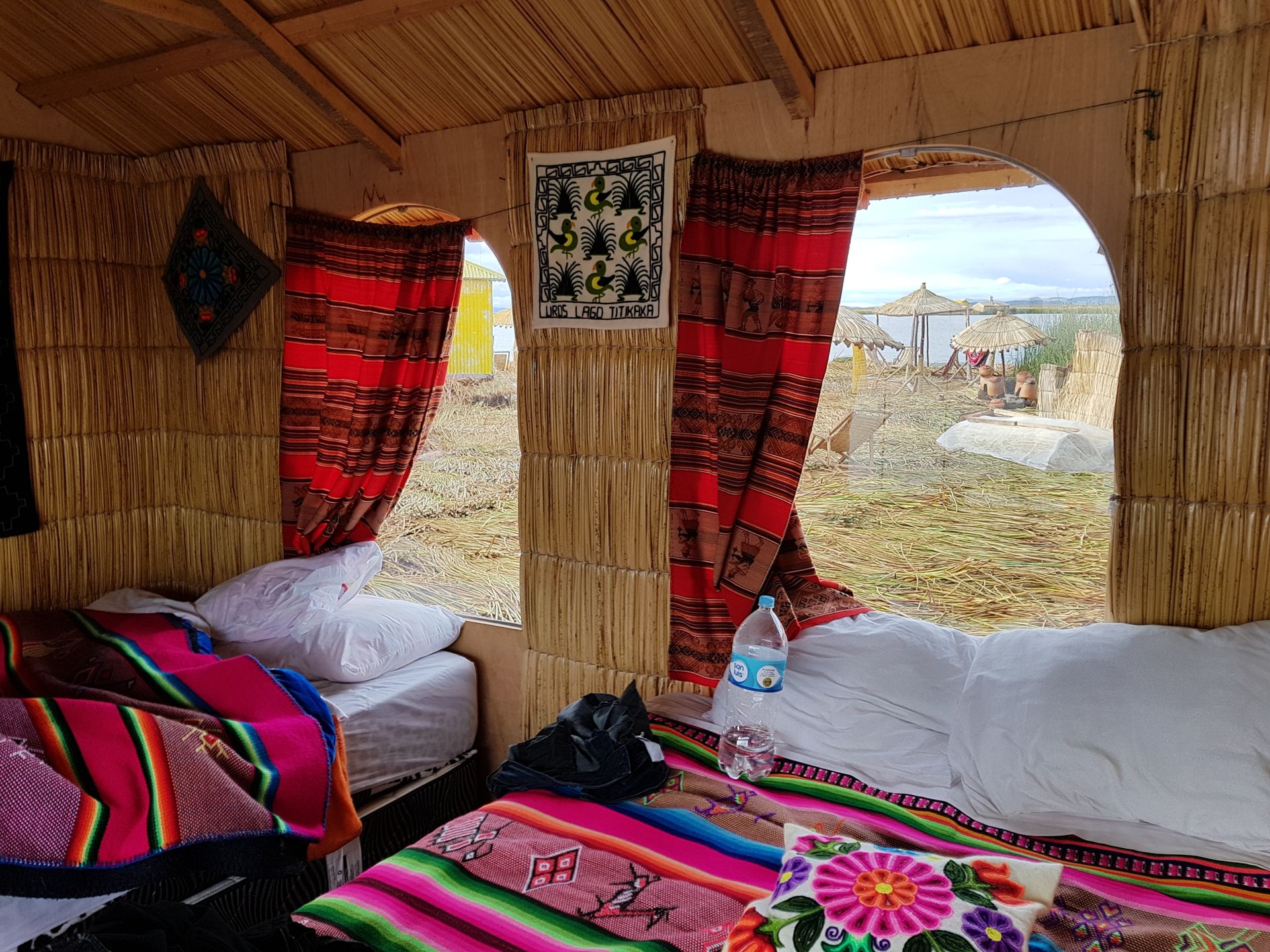
With a private bathroom. You have to crawl through two reed doors to get to a very wobbly outhouse, it's an adventure because you never know if it will tip over and you will end up in the mess. But that's more than enough for me, it's even more than I expected here.
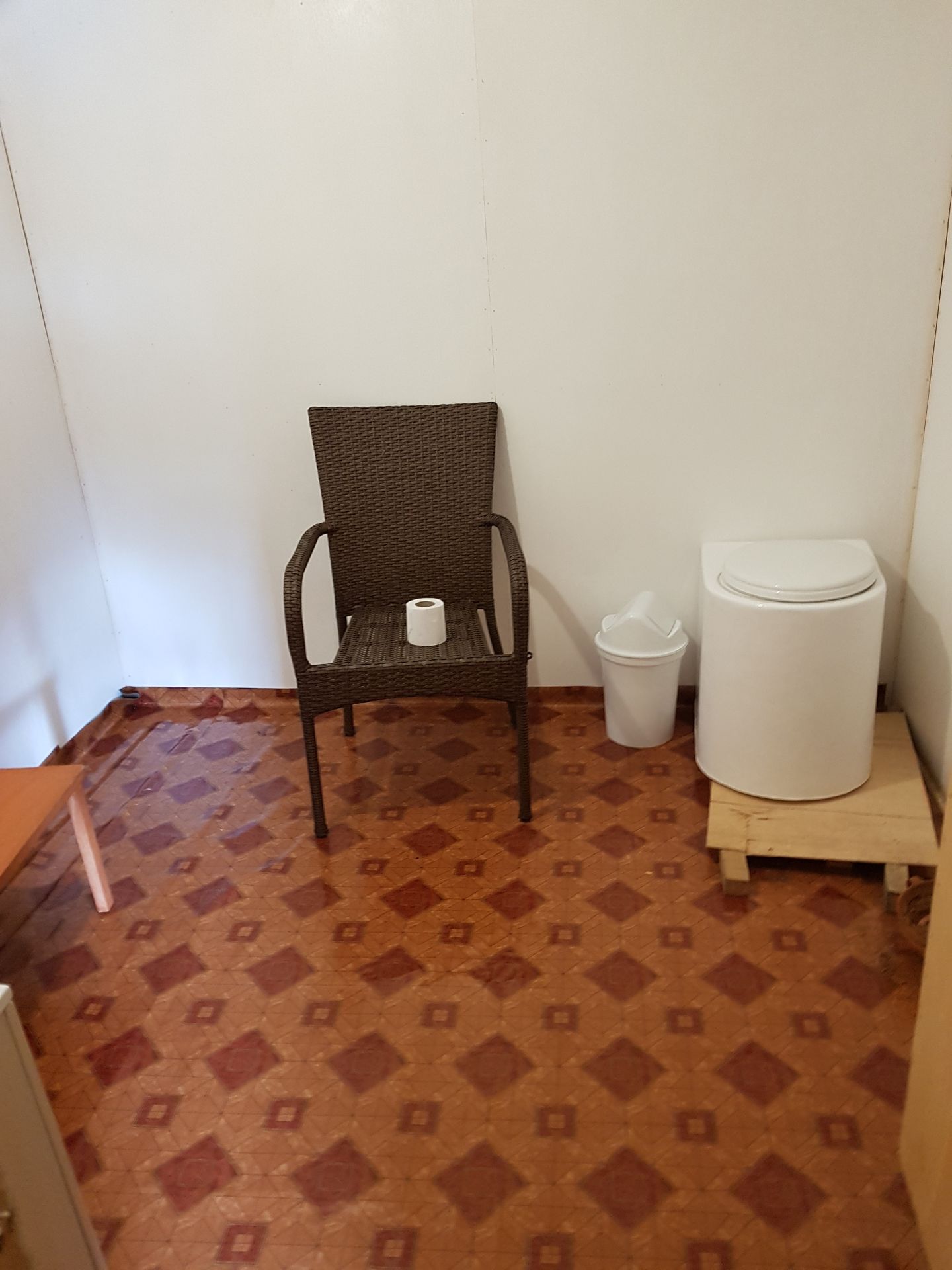
Lunchtime. I help Cesar set the table and he is confused because I put the forks and knives in a completely different way than he is used to. Now he wants to know everything about our table customs. Try explaining that in Spanish...
We have quinoa soup and traditionally trout with quinoa and then fruit for dessert. I don't think I need to mention that the fish here is super fresh.
Since we are all still incredibly tired from the bus trip, it's time to relax for now.
Of course, there is no heating here. (Ughh... can't we make a campfire here?) IT'S A REED ISLAND, DUDE!!! It burns and so on. But we have 7 wool blankets. That's enough. You just can't move because the weight of the many blankets almost suffocates you. But it's cozy.
We take a nap in the afternoon. And then it's dinner time again. This time corn soup, chicken, and potatoes, and for dessert something like homemade mango pockets. Man. I'm staying here!
It starts raining like crazy. Wow! There is lightning and thunder as well.
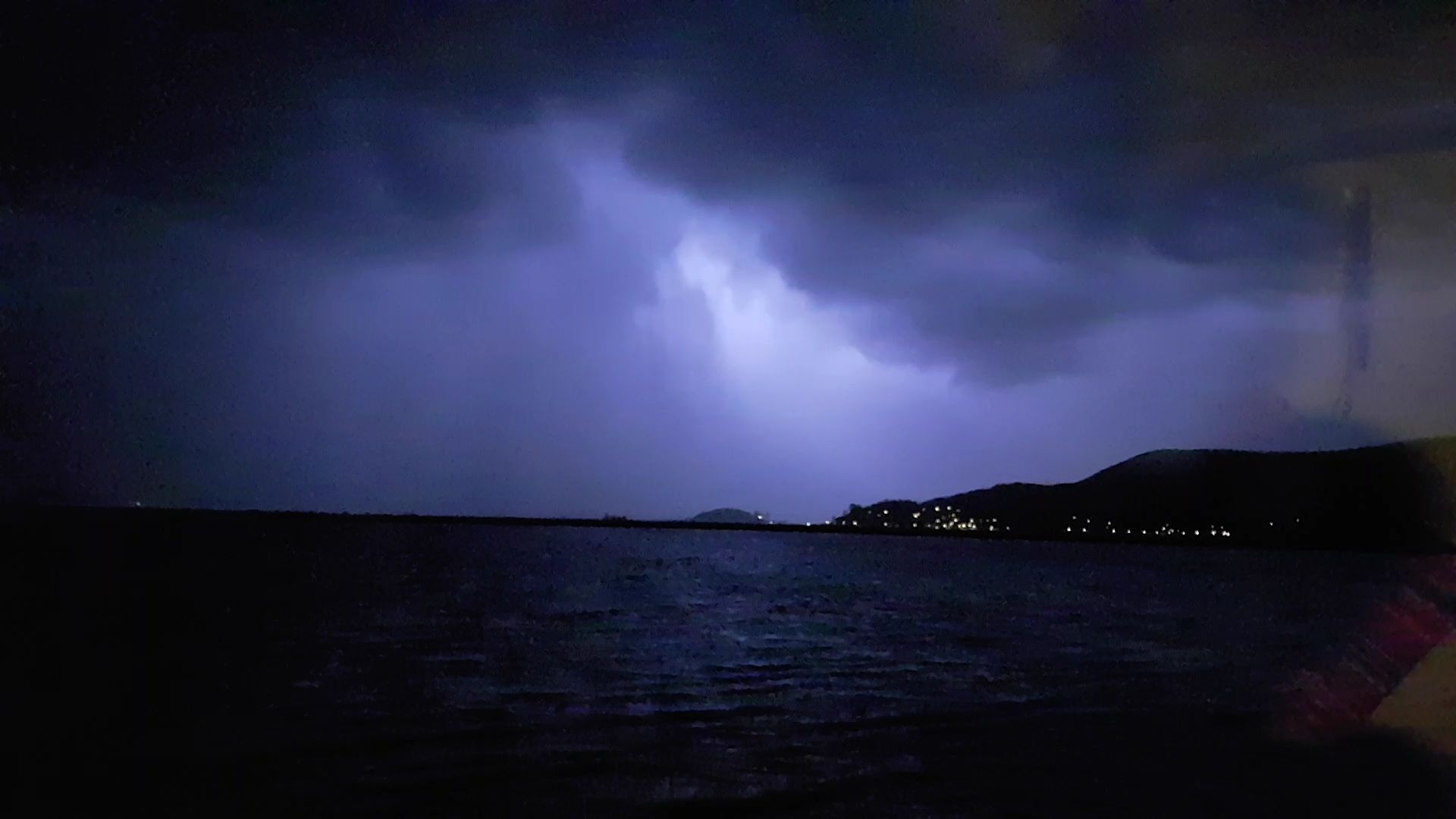
We can't talk to each other anymore because the rain on the tin-reinforced roof makes an incredible noise. The island rocks back and forth. After the rain eases up a bit, I go outside. The wind has torn some wires apart. In the dark and rain, I help Cesar climb onto the hut roof and fix them.
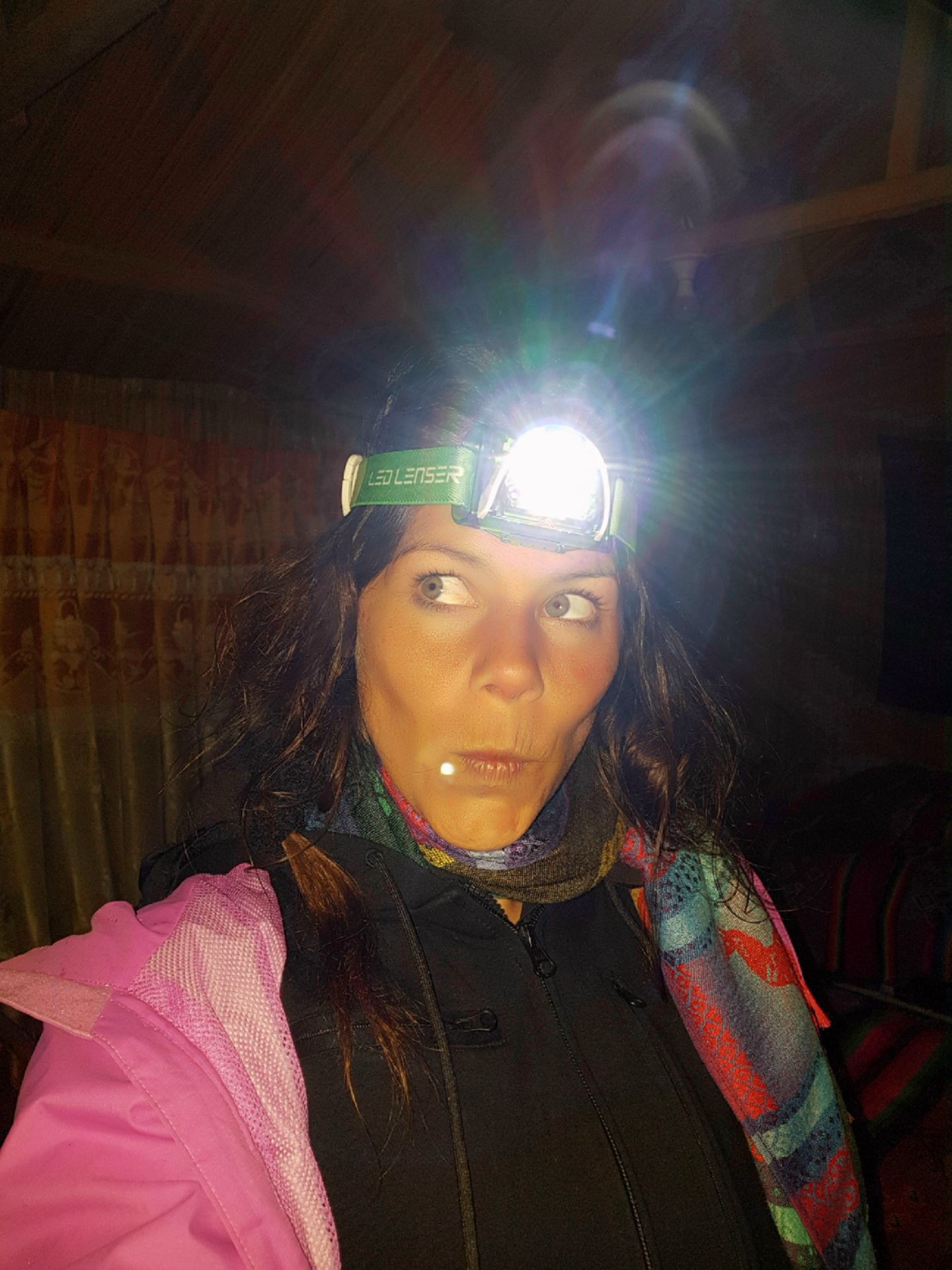
Then he gives me a plastic bottle wrapped in fabric filled with hot water, which is supposed to serve as a hot water bottle for the night.

How happy these little things can make you. It's only 8:30 p.m., but I crawl into bed and sleep through the night. A dream!!!
17.01.
14. day
Wow, I've been here for two weeks already. Time flies. I slept incredibly well under the seven blankets. But at 6 a.m., it's time to get up. I leisurely pack my stuff, have another tea in the main hut, and then Cesar takes me back to the mainland. We have to take the small boat with an outboard motor because the motor of the larger one he usually takes for the trip suddenly fails.

We drive for fifteen minutes to the "harbor," where Cesar has already called a taxi for me that will take me to the bus terminal. Drop off my backpack, then buy an instant coffee from a sweet old Peruvian woman and off we go. I sit in the front again for the overland trip and enjoy the view.
Puno has not yet fully recovered from yesterday's rainfall.
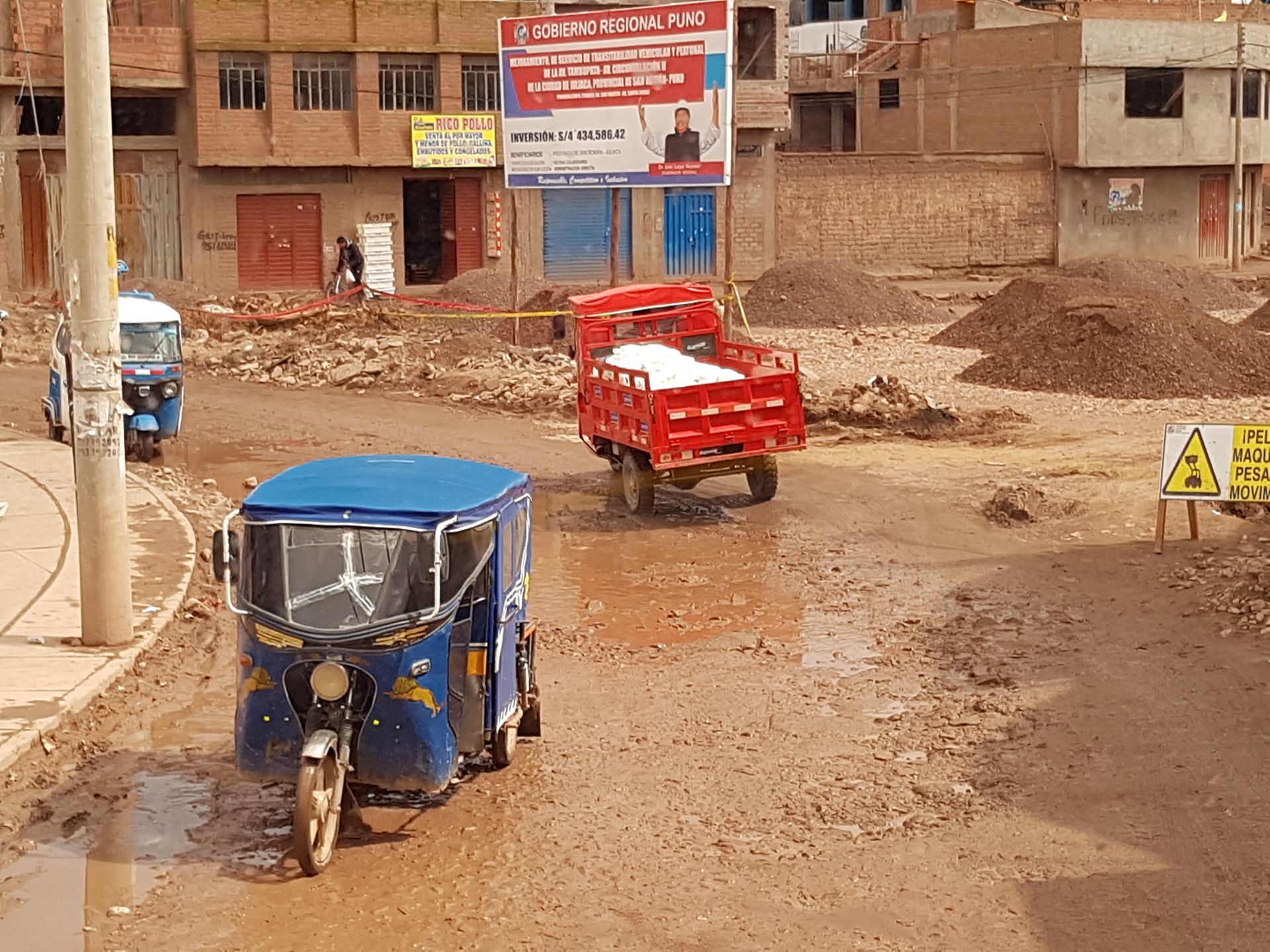
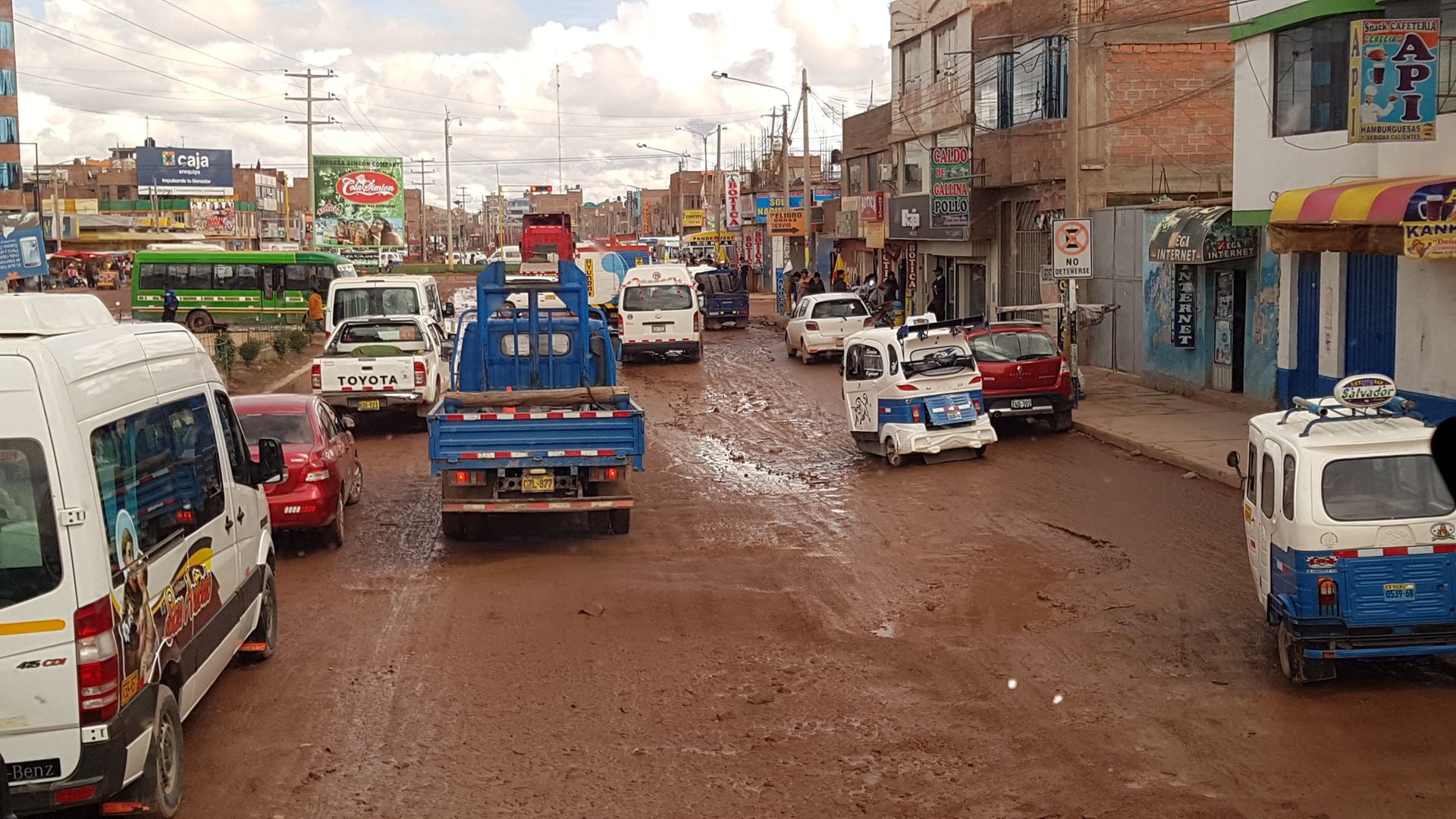
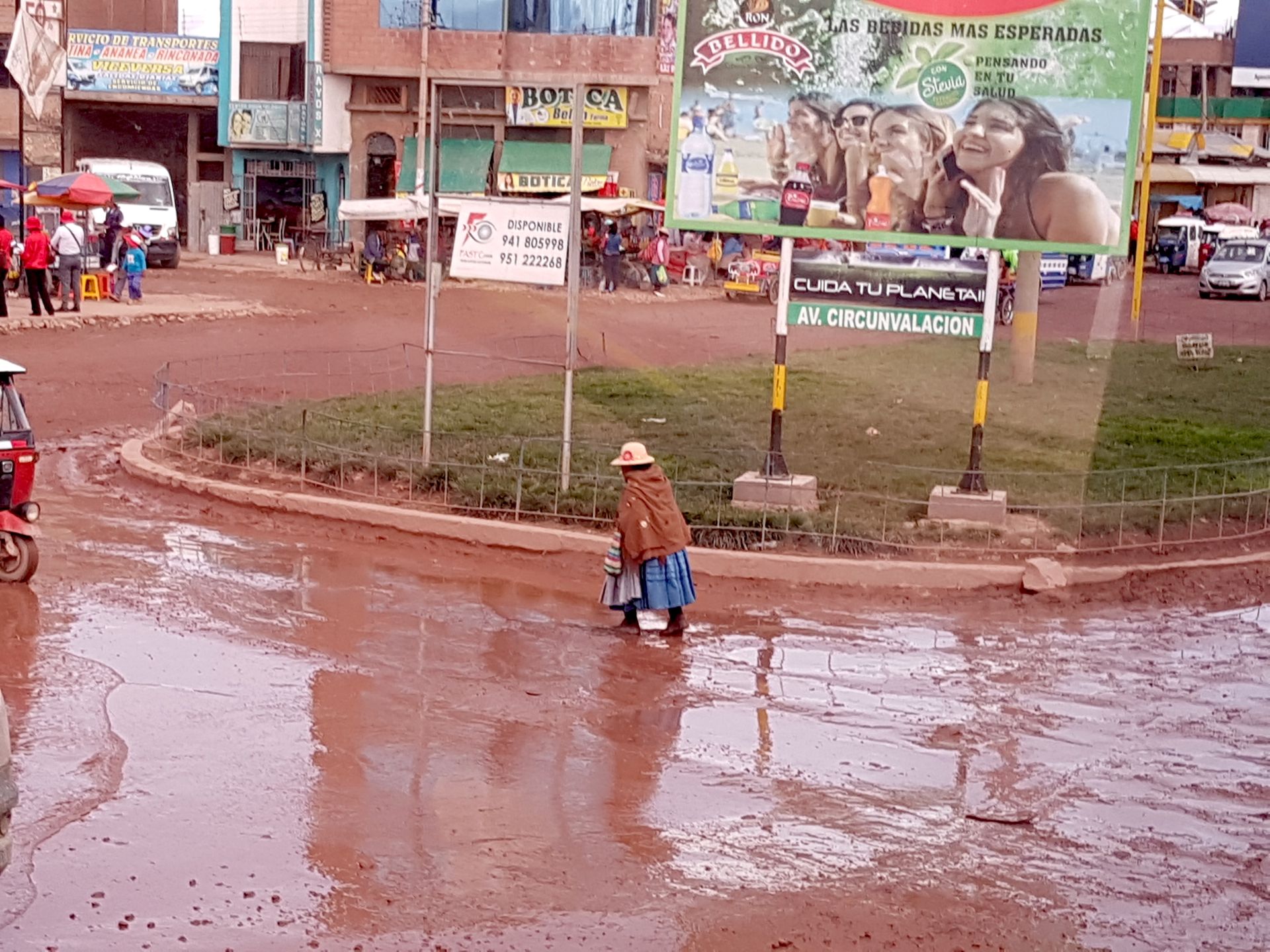
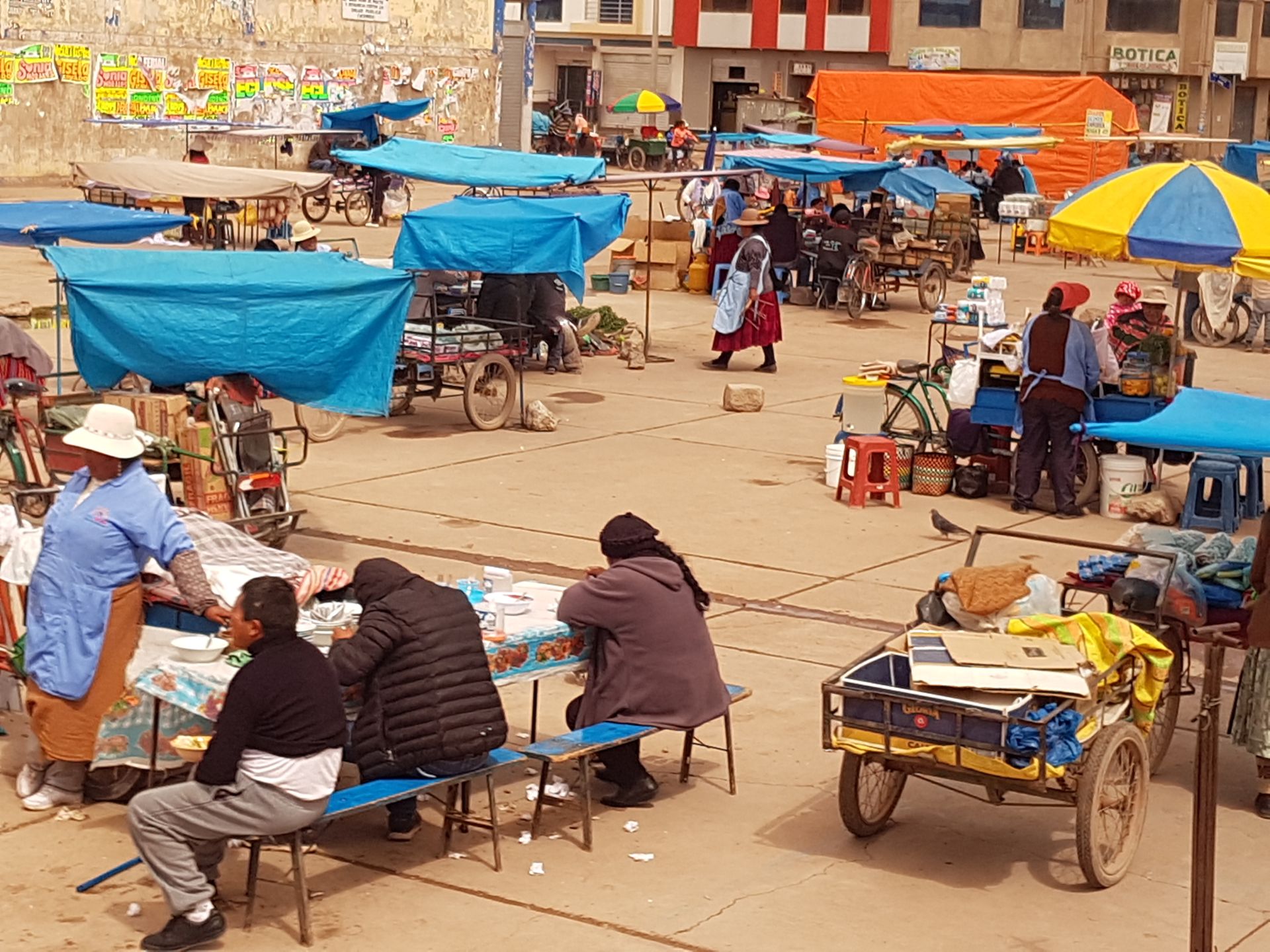
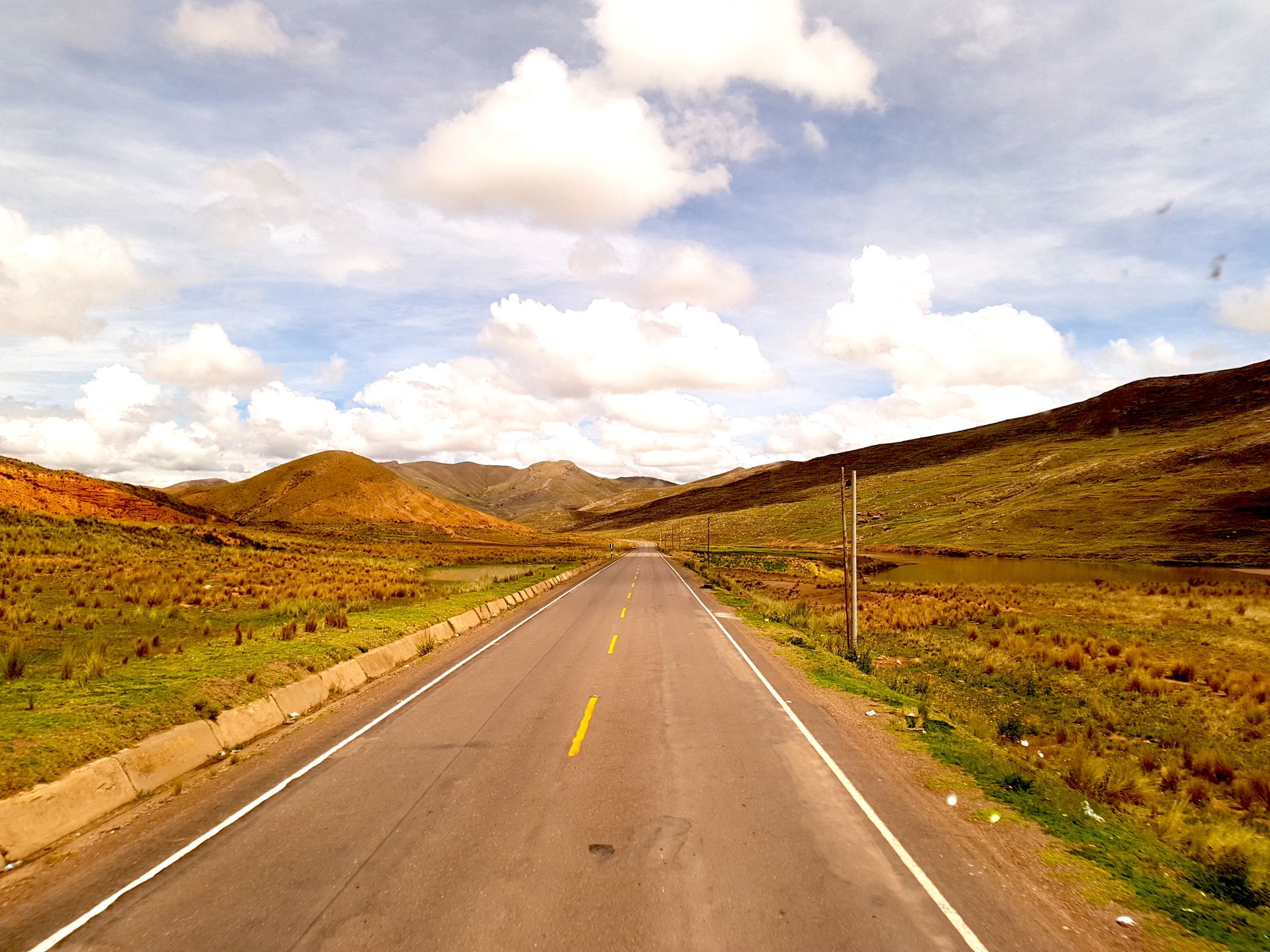

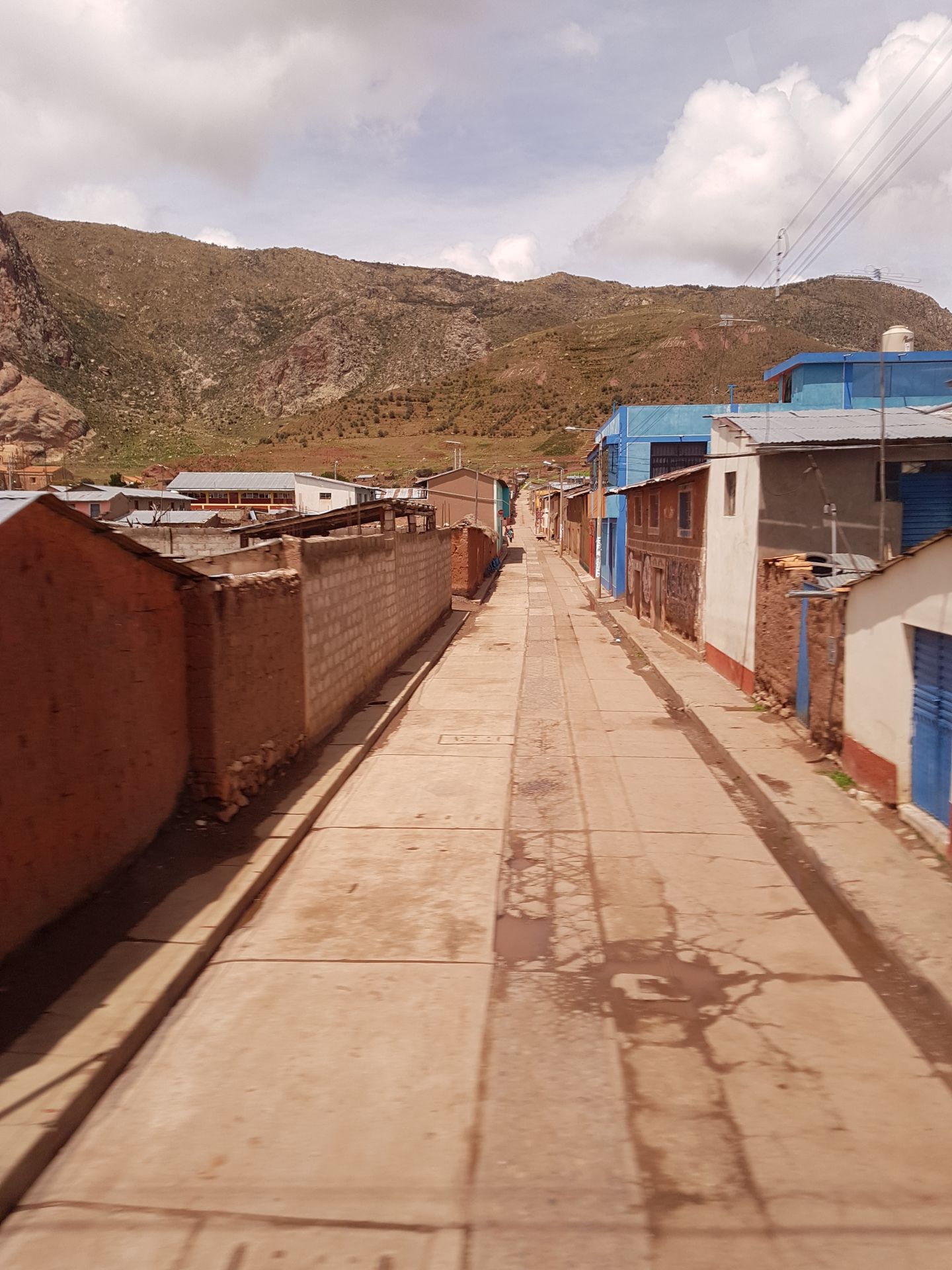
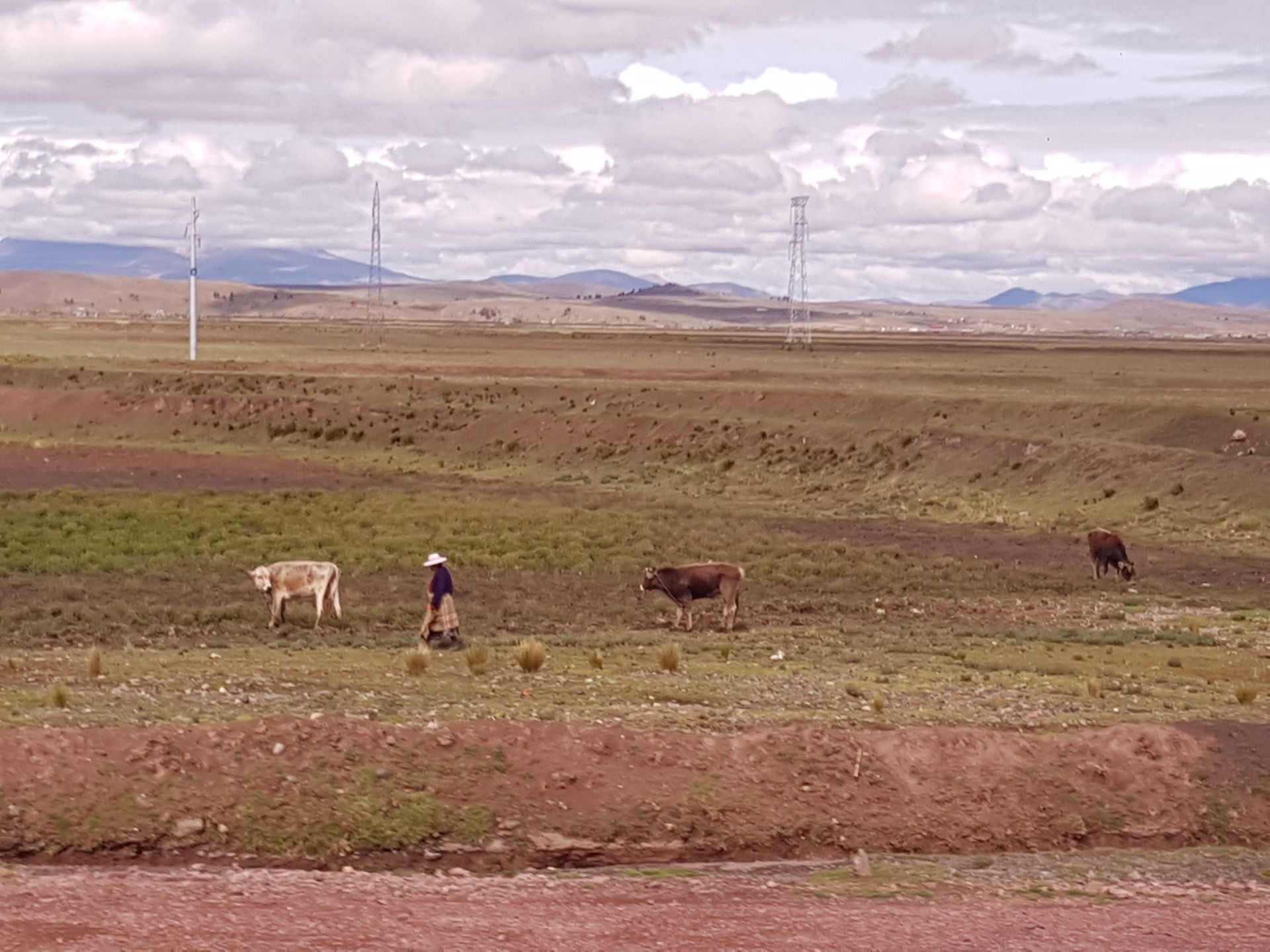
...continue reading on Peru (7): CUSCO & SKYLODGE
समाचार पत्रिका के लिए सदस्यता लें
उत्तर
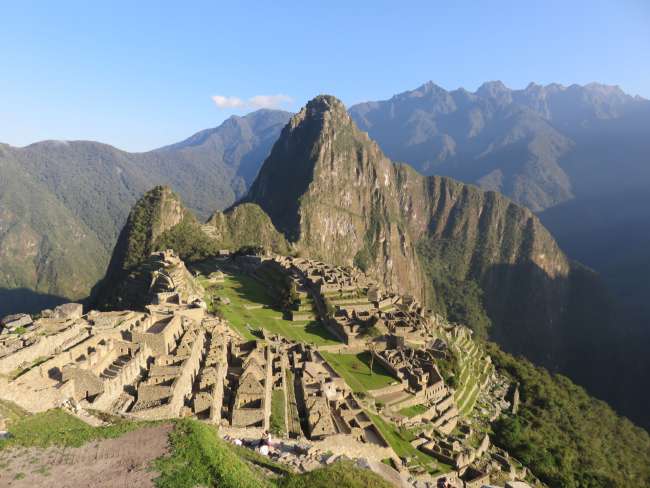
यात्रा रिपोर्ट पेरू
